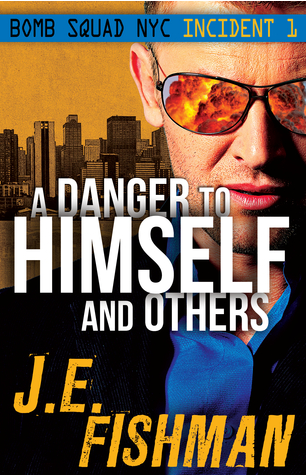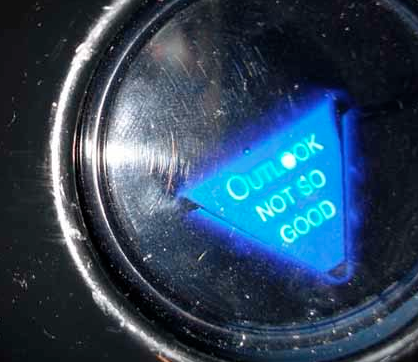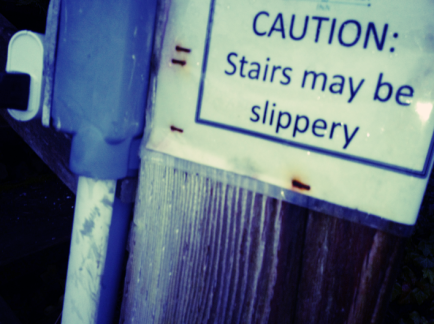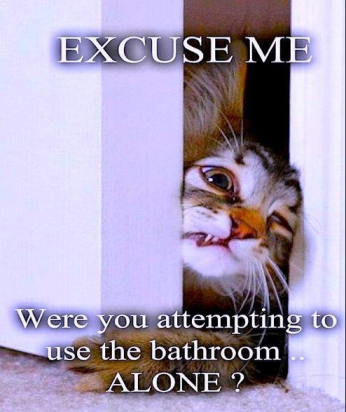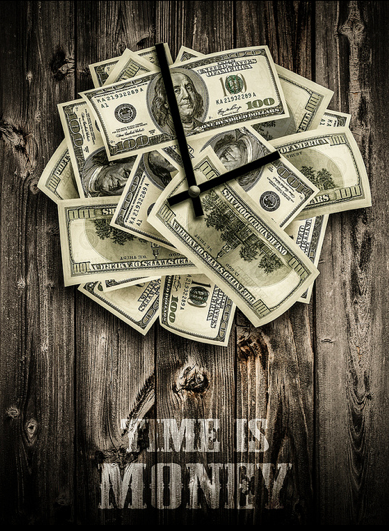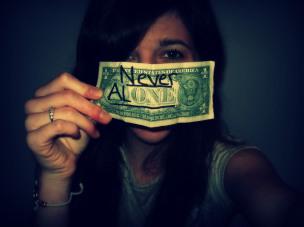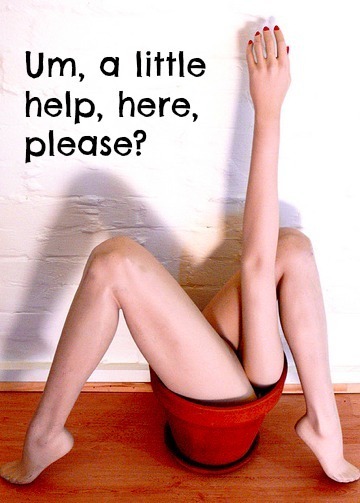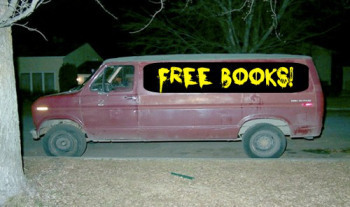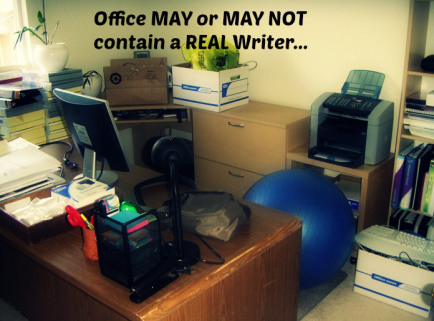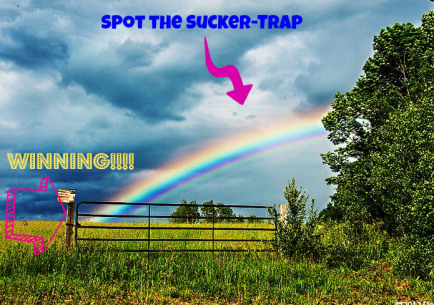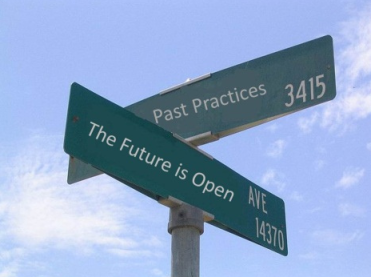Kristen Lamb's Blog, page 64
March 19, 2014
Myth-Busting—The Real Difference Between Introverts & Extroverts & Meet the Ambivert

Actual photo of Kristen in high school (Image via Flikr Creative Commons wwarby)
I made it home on Monday afternoon from presenting at the Tuscon Book Festival, one of the largest book festivals in the world. To meet me at the conference, one would never suspect I’m actually an introvert. Yet, even after two days of sleep, I’m shaking from fatigue. This morning I had to get Hubby to bring The Spawn to school because I simply don’t have enough energy to be safe on the road. I spent all of it at the conference giving (what I hoped) were unforgettable presentations.
Many believe the extrovert is the ideal speaker, yet introverts have a way of channeling energy from themselves to others. When people leave my sessions, they often feel supercharged, like they can take over the world. I love that. It’s what I’m going for…but this comes at a cost for me. I must unplug, get quiet and recharge. Crowds drain me faster than a toddler using an iPad.
BIG crowds? As in a quarter-million people? AHHHHHHHH!
As humans we tend to think in very black and white terms, but as writers and artists, we are wise to remember that people have many dimensions. What we see is not necessarily accurate, especially when it comes to labeling others as “introvert” or “extrovert.”
What Does It REALLY Mean to Be an Extrovert or Introvert?
Introversion and extroversion are very commonly misunderstood. Just because someone is shy, doesn’t mean she’s an introvert. Someone who is bubbly, gregarious and the life of the party can, in reality, be an introvert. The difference between introverts and extroverts is simply this:
Where do we gain or lose energy?
Introverts are drained by people and need alone time to recharge.
Extroverts are drained by too much time alone. They need human interaction to recharge.
Meet the Ambivert
Truth is, most people fall into what is called an ambivert, meaning we exhibit traits of both. If you want to learn if you might be an ambivert, there are cool tests on-line. I’d google them for you, but this post is all I’ve got left.
People who read this blog and who meet me all believe that I am the very definition of extrovert, yet that’s far from the case. As a child, I had to be forced to go play with others. I was very happy alone in my room reading, drawing and copying articles out of my set of encyclopedias.
I was frequently chastised for bringing a book to family events and made to interact with others. Yet, when I did, I was the life of the party. I was fascinated by standup comedy and, being blessed with an eidetic memory, I could perform the standup routines of all the famous comics, down to facial expressions, timing and gestures. My family was particularly fond of my freakishly accurate impersonation of Sinbad.
Yes, Kristen was the precursor to the DVD.
In school, I didn’t want to play at recess. I wanted to read and draw unicorns. But I loved debate and speaking in public. When it came to presenting, I had no fear and, again, I was funny. Being funny helped when you changed schools every six months. BUT, in high school I was shy to the point of probably needing medication. The stage was far less terrifying than the lunchroom.
Before I was married, I would go shopping at two in the morning, because I couldn’t take the crowds. To this day, I don’t like concerts, amusement parks, crowded clubs, conventions, big parties or sports events. I love attending writing conferences because I love writers, love teaching and presenting and I DO love people…but when I get home, I practically slip into a coma. Also, I am okay on a stage presenting to an audience but please don’t make me be a part of a crowd.
As much as I LOVE people, as much as I adore people and making them laugh…they exhaust me.
I work from home and, if I never had to leave, I would be okay…so long as I had Internet connection. One of the things I love about social media, is it allows me to interact, connect, chat, entertain…but at my pace. It keeps me from flatlining myself.
I’ve had to learn from bad experiences that I need to pace myself at conferences if I want to maintain that powerful, positive energy.
The Myth of the Extrovert
There is another common misunderstanding about the whole extrovert thing, and it’s done a LOT of damage in the corporate world (and when it comes to author platforms for selling books).
Companies spend all this time shoving introverts into being extroverts. They hire mega-extroverts for sales, and yet mega-extroverts are some of the WORST salespeople. I witnessed this back when I was in sales, myself.
I recall sitting at a table with a customer and a mega-extrovert salesperson. The mega-extrovert was so busy talking and being entertaining, that he never SHUT UP long enough to listen. He didn’t stop and ask the right questions. In fact, he didn’t ask ANY questions.
That’s a problem.
One time, I was at an annual marketing meeting and the company was putting together the agenda for the next year. They kept going on and on about price, and how we needed to be cheaper. I was brand new, but bold.
I raised my hand and asked, “Has anyone asked our customers if this is what THEY want? Is price the biggest factor?” The table sat in stunned silence. Then I recommended we brainstorm twenty areas where we could serve the customer better and then get them to take the survey.
Price came in at #4.
Customers actually wanted faster lead times. Our product was the type of inventory the customers never thought about…until they ran out. A better plan was to rent cheap warehouses in the areas near our major clients and stock them with the most common sizes ordered. Then we could have offered same-day or next-day delivery….which the company refused to do and still focused on price and lost a crap-load of business and it’s a sore subject with me.
Why did they do this? The mega-extroverted marketing and salespeople controlled the agenda, and they were lousy listeners.
We All Have Strengths and Weaknesses
This isn’t to pick on mega-extroverts. All personalities have strengths and weaknesses. As an ambivert, I do have some mega-extrovert tendencies. I’ve had to TRAIN myself to be a better listener and to ask others about themselves…instead of making them laugh with my Sinbad impersonations.
Awareness is Key
The point of all of this is we need to be self-aware so we can focus on strengths and buttress weaknesses. It is good for the introverts to get out. Too much alone time with the imaginary friends makes us a bit weird…ok, weirder.
Social media can be very beneficial for introverts. It forces us out of the comfort zone and we can interact at a pace that doesn’t put us in a coma. Extroverts get to practice willpower and self-discipline, to shut up, get off Twitter and get back to work.
Ambiverts? We get to do both *head desk*
No Excuses
But the good news is this. This notion that mega-extroverted salesperson is the most effective salesperson? PURE MYTH. This is one major misconception that TERRIFIES most writers into being afraid of social media or makes some writers try to change their personalities….which is just weird and kinda creepy. Be YOU. YOU is awesome :D.
Don’t drink the Kool-Aid.
Here’s an article that displaces the myth that mega-extroverts are the best salespeople, and explains why it’s actually ambiverts who hold the advantage.
Talk to people, listen, ask questions, and let them talk. Be authentic and kind. We don’t have to be super entertaining all the time. Really ;).
For those curious, THIS was my family’s favorite among my vast comedic repertoire:
So what about you? Are you and extrovert? An introvert? Shy? Do you feel misunderstood because you’re a shy extrovert or a people-loving introvert? Do you think you might be an ambivert?
I LOVE hearing from you guys!
To prove it and show my love, for the month of March, everyone who leaves a comment I will put your name in a hat. If you comment and link back to my blog on your blog, you get your name in the hat twice. What do you win? The unvarnished truth from yours truly. I will pick a winner once a month and it will be a critique of the first 20 pages of your novel, or your query letter, or your synopsis (5 pages or less).
For a LONG-TERM plan for a fit, healthy platform, please check out my latest book Rise of the Machines–Human Authors in a Digital World.


March 11, 2014
How to Take Criticism Like a Pro

Image via Flickr Commons, courtesy of JonoMeuller
One of the greatest blessings of being an author and teacher is I meet so many tremendous people. I feel we writers have a unique profession. It isn’t at all uncommon to see a seasoned author take time out of a crushing schedule to offer help, guidance and support to those who need it. I know of many game-changers, mentors who transformed my writing and my character. Les Edgerton, Candace Havens, Bob Mayer, James Rollins, James Scott Bell, Allison Brennan are merely a few I can think of off the top of my head.
J.E. Fishman is another, and he offers a very unique perspective because he’s worked multiple sides of the industry. He was a former NYC literary agent, an editor for Doubleday and now he’s a novelist. His newest book A Danger to Himself and Others is masterfully written. I love books that make me pause, underline and dog-ear. As much as I think I know? I can always learn more. I make it a habit to study those who write better than I do.
Today, J.E. Fishman is here to offer some of the best advice any of us can get when we’re new. If we’ve been around for awhile, we can always use a refresher. Writers do work an emotional, often isolated job, and it’s easy to forget to chew with our mouths closed be professional when so many of us are writing from beneath a pile of laundry and toys.
I hope this guest post blesses you as much as it has me…
Take it away!
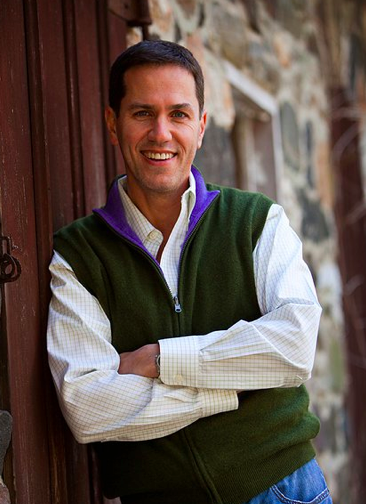
J.E. Fishman
We’re all amateurs at most things, but that’s nothing to be ashamed of.
Maybe we shoot hoops after work or set up an easel in retirement. Perhaps we cook on weekends or spend the morning making an iMovie production of our summer vacation. We are neither professional basketball players nor professional painters nor chefs nor directors. We’re just having fun.
But what if we’re trying to achieve something more as writers? How do we get out of the bush leagues and behave more professionally?
Let’s start by acknowledging that amateurs often have conflicting priorities. They may allow foolish dreams to captivate them, for example, but they can’t always invest the hard work necessary to achieve those dreams. They frequently lean on raw talent when the greater challenge requires practicing craft. And with regard to criticism, they often have thin skin.
I’d like to talk about the thin skin part.
In my experience, professionals are not easily satisfied by their own work, whereas amateur writers take a degree of pride in their work that’s often not commensurate with the accomplishment. And if the person doing the criticizing is not a fellow writer, fuhgetaboutit!
What do they know, the tyro author tells himself. Or, if he’s rude, he says aloud, “What do you know?”
But this defensiveness is a sign of weakness. More important, it turns self-improvement — which is difficult enough in the best of times — into an insurmountable challenge.
Sure, the professional writer who can communicate the technical deficiencies of our work is worth heeding if we seek to improve. But the casual observer’s opinion is just as valuable. After all, most of our audience are just plain old readers, not writers.
Here’s something worth remembering: If we’re creating art, we owe our audience something, not the other way around.
A professional knows this because a professional lives and dies with it. Her skin may be thick or thin by inclination, but she forces herself to respond in certain ways toward criticism because she understands the stakes. To disappoint one audience member is potentially to disappoint all of them.
I was struck last month by a Chuck Wendig blog post in which he called out independent authors, challenging them not to publish amateurishly (“slush pile on display” were his words) — urging them to behave with professionalism, which is to say, to respect their audience. It got me thinking of the people I’ve worked with over the years as an editor and an agent and an author. Over time, you come to know a pro as much by her process as by the work she produces.
Some people think pros just work harder than everyone else. While it’s true that they often do, there are any number of other ways in which a professional distinguishes herself. Acceptance of criticism is among the most powerful. If we want people to take us seriously as a writer, we must take criticism like a pro does:
A pro respects roles. Your editor may or may not be a writer herself. In any case, it isn’t her job to rewrite your novel (unless you hired her specifically to do that, of course). The pro knows where her responsibilities lie.
A pro separates the work from himself — He pushes ego out of it. Even if we’re writing something very personal, we are not our work. The work is a form of communication. It is not what we are, but what we say. The pro doesn’t internalize criticism.
A pro seeks opportunities to learn from criticism. She knows that her art is not static, that a failure to grow with the craft will harm the next work. Every work becomes imperfect the moment it seeks expression. To learn as we go is a means of approaching that ever-elusive perfection.
A pro looks for the source of the problem, not easy fixes. He understands whose job it is to seek solutions. Hint: not the reader’s. Say the reader points to a given scene and asks of the protagonist, “Why’d he do that?” The facile answer might be, “Well, that guy was pointing a gun at him.” The writer here is telling himself that he only needs to clarify about the gun. But in fact, he must ask himself whether he needs to clarify the deeper character of the protagonist that would lead him to choose the action that’s been questioned.
A pro hears what is not said. The amateur too easily dismisses criticism that’s not expressed in the framework of how we think about our own craft. But the pro reads between the lines, asking herself what in the story caused the reader to have that reaction.
A pro accepts challenges. Not every item of criticism calls for a response within the work, but the default should never be a shrug of the shoulders. The pro understands that the path of least resistance, while tempting, rarely leads to great execution.
A pro never argues, never rebuts. The work should be all we ever need to convince anyone of anything. It stands alone. The pro knows that her work will eventually go out into the world defenseless. If a proper understanding of the work requires an off-the-page argument from the author, it’s already failed for that particular reader. There’s no point in discussing it further except perhaps by asking questions to learn.
A pro doesn’t belittle the messenger. Imagine if only architects were allowed to have opinions about the beauty (or utility) of a house. Don’t ever put down critical readers, even in your own mind. Respect your audience, and out of that respect will grow the potential for greatness.
Finally, a pro knows that all the aspects I’ve outlined here are aspirational. None of us is perfect at them — certainly not me. At times I have sniffed at criticisms, failed to read between the lines, not risen to the challenge.
Let’s face it, pro or amateur, criticism of our work always stirs up a measure of disappointment. That’s why we must train ourselves to respond as the pros we claim to be or aspire to be. In the age of specialization, people have high standards for the work of others. We must have those same high standards for ourselves.
****
*Applause* Thanks, J.E. I know all of this is tough to do. We are all works in progress. I know I am.
What about you guys? Are you struggling with leaving the role of the amateur? Are you actively seeking ways to toughen your skin? Or have you gotten to the point where you welcome the crucible? Were you always that way? I know I stared crying in my car after critique. Now? A beta can chop my work to the ground, burn it and then nuke it and I don’t take it personally. I LOVE that someone would take the time to give my work the “trial by fire” before the reviewers can. But, I was NOT always this way. I still struggle to remain this way.
I LOVE hearing from you!
J.E. Fishman, a former Doubleday editor and literary agent, is author of the wisecracking mystery Cadaver Blues, as well as thrillers The Dark Pool and Primacy. His Bomb Squad NYC series of police thrillers launches this month with A Danger to Himself and Others and Death March.
To prove it and show my love, for the month of March, everyone who leaves a comment I will put your name in a hat. If you comment and link back to my blog on your blog, you get your name in the hat twice. What do you win? The unvarnished truth from yours truly. I will pick a winner once a month and it will be a critique of the first 20 pages of your novel, or your query letter, or your synopsis (5 pages or less).


March 10, 2014
Should Authors Have to “Market Themselves”?
“Crap. Revisions tore my hose. But I need to sell more books and get out and ‘market myself’…”
Image via Darwin Bell, Flickr Creative Commons.
All right, don’t stone me, but I feel some of the marketing “buzz words” range from terrifying to annoying to outright offensive. For instance, every time I read “target your demographic” or “target your readers” I wonder if this comes with a Predator Drone or at least a laser sight.
I don’t know about you guys, but I get creeped out being “targeted.” It makes it seem we (seller and consumer) are opponents—one the cunning victor and the other the hapless dupe who landed in the marketing crosshairs.
But the one that’s gotten my hackles up over the past week or so is when writers are beating themselves up. They write things in my comments like, “I know need to try harder to market myself” or “It’s no longer about marketing my books, I have to market ME.”
NO.
If I’ve in any way contributed to this feeling, my deepest apologies. I hope this post will clear things up.
The Difference Between Market Norms and Social Norms
Two norms guide all commerce. Market norms are cold, driven by data. We pay the price on the tag. There’s no emotion, and no relationship. All purchases and exchange of goods and services is simple. We don’t go to buy a computer then are hurt because we thought Best Buy was our BFF and could have made us a sweeter deal.
Social norms guide relationships. If I open the door for you, I don’t hold out my hand expecting a tip. When I make dinner for Hubby, I don’t bring him a check with 20% gratuity factored in because I have to clean the kitchen, too. If Hubby paid me after fooling around, he might suddenly go mysteriously missing.
Transition
In the 1990s, as the TV-Industrial complex began to crumble, we saw more and more businesses blending market and social norms.
Like a good neighbor, State Farm is there.
For corporations, using social norms can be beneficial. If we (consumers) like a company, we are willing to pay higher prices and can have greater loyalty. BUT, this company has a much steeper obligation. Don’t call us family then exploit us. Not only will we complain, we will raze your brand to the ground on-line. Companies can’t have the benefits that go with harnessing social norms, then forget the greater responsibility.
Evolution of Commerce
In the olden days, we didn’t have a lot of choices. When I was a kid, if you wanted to buy a new TV, there were about three brands to choose from. There were also three kinds of spaghetti sauce. Most household cleansers were manufactured by the same company. Ma Bell issued a phone when you activated a line in your home. If my parents wanted a different phone or a newer phone or a phone repaired? They called the phone company.
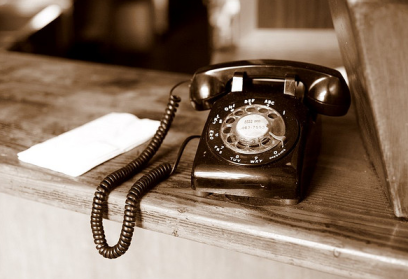
Image courtesy of Clemson via Flickr Creative Commons.
And had THREE colors to choose from  .
.
Yet, as markets opened up bringing increased competition, this presented a problem to The Big Guys who’d enjoyed gouging consumers who had no other place to go. Cheaper and even better options came along and the pseudo-monopolies began to crumble.
For instance, my husband has this COOL remote control car that can do speeds in excess of 55 mph and is extraordinarily maneuverable. When I was growing up, if you wanted a remote control car, you went to Radio Shack and took out a second mortgage on your house to buy one…and generally it worked once then died.
Remote control cars were The Great Class Divider—those who could afford one and then the rest of us.

Image courtesy of Gazanfarulla Khan via Flickr Creative Commons.
Now? In 2014? I can’t believe Radio Shack is still around. Sometimes I think it’s only because we still have a population over age 70 who still shops there. My grandfather, who is almost 90, still goes there to buy batteries, proving old habits die hard.
Yet, as the years passed, emerging markets offered newer, better and cheaper options. We could have all colors of phones. CORDLESS phones. Eventually phones with an answering machine built in and then Caller ID. More and more features and bells and whistles for less and less money.
When the Internet arrived, this only exacerbated the problem. And, as computers became more affordable, Internet service did too. E-Commerce arrived. Consumers no longer wanted to browse the window of an electronics store when they could purchase on-line cheaper and get free shipping.
Thus, with the explosion of options, market norms became highly problematic. To rely completely on market norms is a race to the bottom of who can give away the most stuff and the best stuff for free. How can companies mitigate this?
Let Me Introduce “Social Norms”
When we had only a handful of choices for coffee, we bought the one mom did. We chose between caffeinated, decaf, and instant. Fast-forward 20 years.
In an endless sea of coffee choices, manufacturers didn’t want to compete on price if they didn’t have to. Thus we now pay more than double if a coffee is “Rainforest Friendly” or “Organic.” Our purchases have come to reflect our values. Case in point, the new Follow the Frog campaign:
Is it non-GMO? Gluten-free? Environmentally friendly? Recycled? Does the manufacturer donate a portion of profits to charities we support?
Even large companies are realizing Facebook can be an asset and that people don’t want endless spam and promotion. We want a company that includes us and represents our values. We are willing to pay more to those kinds of companies. We want to like who we buy from.
We gravitate to companies with a real person behind the tweets and posts. Smart companies are recognizing they need to keep a finger on the pulse of their social platforms.
When I was ready to throw the first Mac I bought through the closest Apple Store window, I tweeted about my frustration. Guess who replied? Guess who worked tirelessly to make sure I was happy?
Guess who now uses Apple almost exclusively and has become a VERY good customer?
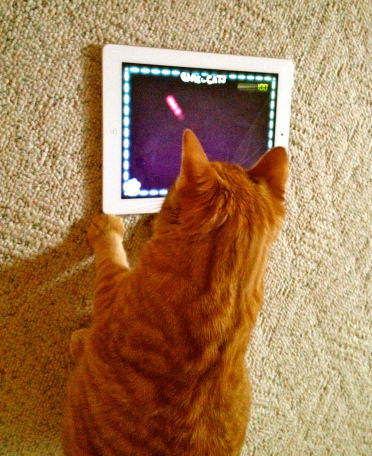
Yes, Hubby even downloaded a game for the CAT.
I was willing to pay more for a company that not only solved my problem, but actually seemed to care about it. When the HP I owned had issues (and I’d had several HPs over the course of a decade), HP ran me through and endless maze of chasing my own @$$ with confusing and impersonal on-line forms that went unanswered. They used the information to spam me instead of solving my problem.
In the end? I knew I’d pay more with Apple (and wouldn’t have any new clothes for at least five years), but I chose the company that made me feel they were on my side, that I was more than a number.
Back to the Eternal Question—Do Authors Have to Market Themselves?
We have to remember the distinction between a business and a human being. When humans start “marketing themselves” it drifts into Creepy Land. Bluntly, it makes me feel like I need fishnets, heels and a red light that hides my smile lines. Or maybe I need to take up juggling fire while wearing a costume and swallowing swords.

We strongly suspected Earl had a book for sale…
Image courtesy of Rafael-Castillio via Flickr Creative Commons.
Granted, all of us on some level “market ourselves.” When we apply for a corporate job, we know that we have to wear the right suit, the right smile and have the right answers in an interview if we want to land the job or promotion.
But what if we had a plan for “marketing ourselves” to make friends? A bullet-point reference to make others like us. Worse still, how ookie does it get when we actively put together a plan for people to like us so they will buy something from us?
Hey, Baby, you wanna date book?
Writers are not Geiko. We are not AFLAC or P&G or Apple. We are people. A company is a non-living thing striving to connect and be personable. Companies have always been in the goods and services business filling needs. Companies have always been driven by market norms and that’s never been a question of ethics.
When human interactions are driven by market norms? That’s called slavery and prostitution.
Writers are people. A person is a person. When I actively make a plan for people to like me so they will buy my book? I need a shower and counseling.
All Humans Have a Brand
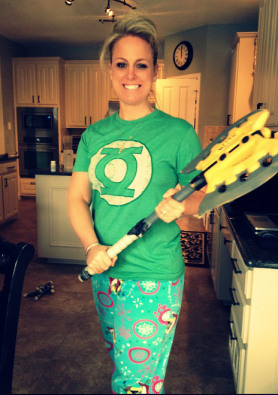
My brand. Spongebob, Green Lantern and NERF—oh, and I write books, too.
Brand is merely what comes to mind when we think of a name. When I think of AT&T, I see red. It brings to mind hours of runaround with customer service and the half zillion times they have screwed up our bill (where we live we have no other option).
When it comes to people? They also have a brand. They could be our vegan friend who competes in triathlons or our zany friend who collects action figures and goes to ComicCon.
I don’t call Such-and-Such in an emergency because he’s a notorious flake. If I have a bad day, I call Thus-And-Such, because I know she is kind and will set down everything to let me cry.
I avoid Uncle Burney because all he talks about is baseball and is utterly oblivious to the fact that I am chewing my leg off to escape the conversation. On the other hand, I love Uncle Olaf, because he invites me to play video games with him. He laughs a lot and asks me about my writing…and cares about my answer.
We unfriend people on social media because they might be rude bullies who rant or complain non-stop. We gravitate to others because they make us laugh or are always positive. These people may or may not have a good or service for sale, but they DO have a brand.
When it comes to creating a “marketable author brand” I have zero interest in changing you beyond what would need to change in any normal social situation. Name-calling, negativity, bragging, self-centeredness, putting others down are not great habits for us to have in LIFE. Thus, we all need to ixnay them with social media or it WILL create a negative brand.
I understand some writers will have to press beyond being shy. But, being shy in our personal lives limits how much we can connect as well. I know. I used to have such bad social anxiety, the thought of talking to someone I didn’t know was enough to make me throw up in my shoes.
I attended five years of high school and five years of college and had no friends. If I didn’t want to be a loner all my life, I had to press past my profound fear of people to grow as a human being.
Self-Promotion
We don’t like people who promote themselves in person. Why would we like them on-line? Granted, writers do have to strike a balance. I find we generally end up gravitating to extremes. Either writers blast non-stop deals, specials, contests and tours to tout their latest book or, the fact they have a book for sale is a Top Secret.
We need to find that balance. I was in Rotary for almost seven years. I knew who was a dentist, a surgeon, an accountant, or a veterinarian. I did business with them first because I knew them as people. They didn’t need to show up to our weekly meetings with flyers and coupons. They didn’t need to sit at lunch an pitch me how they were the best surgeon for removing suspicious moles.
The Two Basic Differences in a Regular Person Brand and an Author Brand
All this said, I will admit our brand is slightly different and I am going to use the word marketable extremely carefully. WANA isn’t here to slap your on-line personality in a short dress and digital body glitter.
Don’t come back until you’ve sold some books.
Yes, regular people have a brand, but most regular people don’t want to use that brand to sell books. Aside from being a nice human being, the crucial differences in a regular person’s “brand” and our “author brand” are:
Community is Part of Our Job
If a regular person disappears off Facebook for six months, it doesn’t matter. We as writers should have a goal of creating an authentic community, of creating relationships with those in our circles. Then, we are tasked with maintaining that community and hopefully growing it. If we only appear out of the ether when we have a book for sale, we become about as appealing as that cousin who never calls unless he needs bail money.
Authentic relationships will help us personally and professionally. We need a system of support. We also can be that support for others. Service is good for the soul and sound relationships are a two-way street. Book sales may or may not directly evolve from this, but it’s a better use of time than spamming victims from a purchased e-mail list.
Clarity is KEY
If a regular person wants to tweet using @I_LuvPandas, @LovelyKisses99 or @CarolinaChik, that’s fine. No one needs to know their name. Writers? If we are tweeting, blogging, whatever under a cutesy moniker? We’re wasting time. People cannot find our book if they don’t have OUR NAME.
The more layers of friction we add for others trying to find us/our books, the less likely we are to eventually make a sale. If I blog as Unicorn Fairy Hugs, tweet under @FairyGurl, am on Facebook under two or three different pen names, who can keep up with that?
People (readers) are pressed for time and will gravitate to those who don’t waste it.
When we use social media properly, our names become tied to our “brand.” In my case—social media for writers, craft, blogging, Star Wars, green juice, yoga, Gluten-Free, Lord of the Rings, The Spawn, zombies (notice my “author brand” is who I AM as a person as well).
But I’m not sitting around thinking, “Wow, I need a marketing strategy to market ME. I have to promote ME.” I’m simply doing what’s necessary to create genuine relationships. Beyond that? As a writer I have only two more necessities that distinguish my brand a) attendance b) coherence.
Same with you guys. Be present, be vested and be you. There will never be another  .
.
What are your thoughts? Does this notion of “marketing yourself” make you feel ookie, too? Does self-promotion give you hives? The creeps? Am I making too big a deal out of it? Have you bought books simply because you liked the author? Maybe it was even a book in a genre you never read? On the other side, have you avoided buying books from an author because you didn’t like them as a person? Have you ever had a business make you feel so good you were ever-loyal? Have you have a company you were loyal to take advantage of you and now you’re their best-worst advertising?
I LOVE hearing from you!
To prove it and show my love, for the month of March, everyone who leaves a comment I will put your name in a hat. If you comment and link back to my blog on your blog, you get your name in the hat twice. What do you win? The unvarnished truth from yours truly. I will pick a winner once a month and it will be a critique of the first 20 pages of your novel, or your query letter, or your synopsis (5 pages or less).
For a LONG-TERM plan for a fit, healthy platform, please check out my latest book Rise of the Machines–Human Authors in a Digital World.


March 7, 2014
Writing—So Easy a Caveman Can Do It

Original image via Flickr Creative Commons courtesy of Sodanie Chea
Recently a Facebook friend shared a post with me regarding Indie Musicians versus Indie Authors. It appears our culture has a fascination and reverence for the Indie Musician whereas Indie Authors face an immediate stigma. We authors have to continually prove ourselves, whereas musicians don’t (at least not in the same way). My friend seemed perplexed, but to me it’s very simple.
We’re not even going to address the flood of “bad” books. Many writers rush to publish before they’re ready, don’t secure proper editing, etc. But I feel the issue is deeper and it reflects one of the many challenges authors face and always will.
People give automatic respect to a musician because not everyone can play an instrument or sing. Simple. It’s clear that artist can do something many cannot.
As writers, we have an insidious enemy. People believe what we do is easy. If we are good writers, we make it look effortless. I recall being a kid watching the Olympics. The gymnasts made those handsprings look like nothing. Being four years old, I dove in…and broke my arm…twice (because I’m an overachiever that way).
The blunt truth is everyone has a story to tell. They do. Every life can be fascinating in the hands of a skilled author. Every idea can be masterful in the hands of a wordsmith. Ah, but the general public assumption is that the only thing standing between them and being J.K. Rowling is merely sitting down and finishing the story. Many believe that, because they’re literate and have command of their native language that they can do what we do.
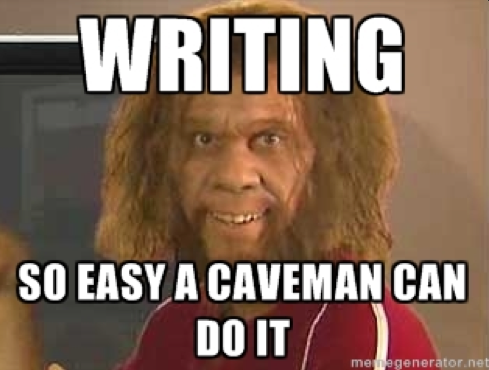
Geiko Caveman.
Of course, this isn’t the case (as we know all too well). A trained author draws the reader into a world of magic where the audience doesn’t notice the wires and mirrors, only the floating woman. We blend plot arc and character arc to drive tension.
We must develop layered, dimensional “people” and blend in setting and world-building where it’s so integrated it’s probably unnoticed. In fact, if people do notice, likely that section needs edit. Great dialogue is a skill. Subtext, theme, and on and on.
Readers generally don’t appreciate how we’ve done this, they only know we’ve created this magic when they get lost in the book, when they can find no “good” place for a bookmark. This is one of the reasons I strongly caution novelists starting “writing blogs.”
Readers don’t care about structure, POV, word echoes, verb issues, or formatting unless we screw them up. Only other writers care about how we use our tools. Readers care about the finished product.
Why Do I Mention This?
Most of us will face mass opposition when making the decision to write for a living. People see so much writing all around them, they take it for granted.
Many years ago, I got my start as a technical writer and copy writer/editor. I remember an acquaintance making a snarky comment about how there was no money in writing and essentially it was all foolishness (he was a stock broker). I’d finally grown enough of a spine that I stood up to him.
Me: You watch movies and television I assume.
Jerk: Of course.
Me: And when you’re learning a software program, I assume you use the Help tools.
Jerk: Yes *strange face*
Me: And magazines? Articles? The news? I assume you enjoy those too.
Jerk: *getting quiet*
Me: Then there are commercials, textbooks and the Internet. I’d wager you use Google.
Jerk: What are you saying?
Me: Last I checked, the Internet involved a lot of words. No writing, and the Internet is just a super expensive picture book. And, perhaps I’m out of line, but I’d imagine someone wrote the screenplays to the shows and movies you enjoy. I can’t see Hollywood paying a hundred million dollars for actors to just “riff.” Someone wrote the instructions to put together your computer desk and wrote those textbooks you used to train you for your career. And I’d even go so far as to say someone wrote those novels you enjoy and the magazine and news articles you consume regularly.
Jerk: *silence*
Humans have been so spoiled with writing for so many centuries, they frequently dismiss it. Centuries ago there was far more reverence for the writer, but this was in the days when most people were illiterate. Only a handful of special people had the time, money, education to write (or read).
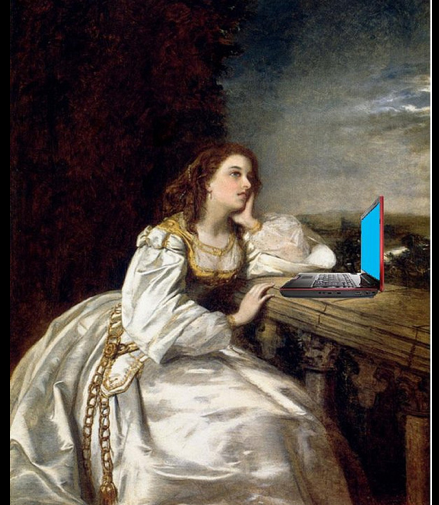
Image via Flickr Creative Commons, courtesy of Mike Licht
The wonderful side of public education and widespread literacy is this means more readers. Yes, those early authors were legends, but most of us would cry if we had the same book sales. There was no such thing as selling millions of books.
Of course the dark side is that humans have a tendency to take things for granted. We all do it. We assume if we paid our bill, we’ll have power. If we call 911, someone will answer. If the roads are a mess, someone will repair them. And writing? Everyone can do that.
It’s easy.
Stand Firm to the Truth
We know what we do is anything but easy, but we must be vigilant against this widespread perception or it will lead to self-doubt, giving up, being hypercritical of our own work, or seeking to please everyone with our story.
Those of you who’ve followed this blog know I have a thing for little “sayings.” Often I put them on Post-It Notes to remind me. One of my go-to phrases is, If you cannot defeat them, distract them.
I’ve been in writing groups where the writer took every last comment/criticism as if it were gospel. When we are new, most of us lack confidence. This can lead to the Book-By-Committee. We keep changing the plot, the characters, the dialogue because one person frowned (and we didn’t realize they merely had gas).
I’m 20,000 words into Book Two of a trilogy. I sent the first book out to trusted beta readers. Every beta reader loved the book…save one. Characters all the other readers enjoyed, the one beta despised. The main group loved the description, the human flaws, the layers of complex plot. The critical beta recommended tearing down and starting over.
Now, in “The Old Days” I would have ignored what nine people said to please ONE. I’d have cried and indulged in gratuitous self-pity and believed I could never write a novel. Woe is me. I’d have trashed the book and started over.
Now? Pfft. I have rhino skin. I’m beyond the point where I need hand-holding and ego-stroking (blogging will beat that out of you).
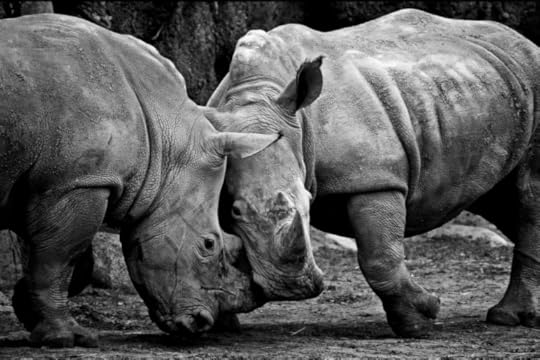
Image via Flickr Creative Commons, courtesy of Paul Hudson
Are all this one beta’s comments bad or utterly misguided? Not at all. I took the detailed notes the beta gave and sent them to those who loved the book. I genuinely wanted the truth. “Hey, did you guys feel/see any of these things? Is a total rewrite something I should consider? I think many of the ‘problems’ can be fixed with a handful of sentences. But, if I need a complete tear-down, now is the time to tell me.”
I’ve written the Book-By-Committee and it is an ugly beast that pleases no one.
I recently picked up a piece of my early writing that was slayed by a well-meaning critique group. As a more mature writer and editor, I saw that they’d benevolently edited the life out of my work. They were injecting their genre, preferences, and voice onto my work. And I eagerly gobbled it down and rendered a solid piece of writing a soulless Frankenstein mess.
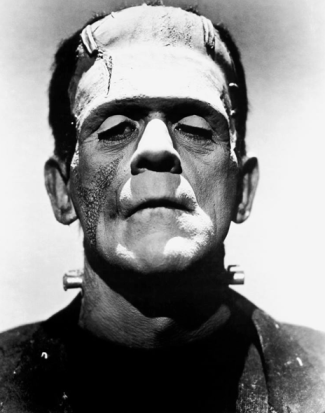
I used to be a pretty good novella.
Critique and editing are critical, but we must handle with care. First, we need thick skin. Professionals should not have to be coddled and handheld. We can offer a thoughtful, articulated defense as to why we made certain decisions, but this is different from being defensive. One is the product of confidence and the other is the Goo of Doubt.
If all ten beta readers saw the same thing? Houston, we have a problem. One? I still should listen, but with care. If I don’t, I risk overworking a book trying to attain the unattainable—perfection.
I actually found it funny how this experience elucidated points I’ve been making lately. We can NEVER write a book everyone loves. We can’t. It was almost laughable looking at my edits. Lines of dialogue the others highlighted with “LOVE, LOVE, LOVE IT!” were the same lines the critical beta advised I delete.
But, this is why we must stand firm and remain true. I could cry and go back and rewrite and rewrite and rewrite and I will still have at least one person (likely more) who doesn’t like final product. This is why we must learn to keep pressing forward and ship.
Learn the Art of Discernment
Being a professional author cannot be a democracy where everyone has an equal vote (unless you just want to go crazy). In ways, we have to be more of a benevolent dictatorship. Learn to say, “I hear your concerns and I’ll take them under advisement.” Why? Because everyone has opinions and advice, but only we will live with the consequences.
Remember, If you cannot defeat them, distract them. Trying to write the book that all demographics will love is a fruitless endeavor. It’s a distraction which will lead to defeat. Keep writing. Failure isn’t bad, it’s the tuition we pay for success. Understand that the world can believe what we do is easy, but they have a right to be wrong. We know better. Choose which voices to listen to. Part of maturity is learning the art of discernment.
Be brave enough to hand your work to someone who might hate it. The one beta who didn’t like my book? Doesn’t read this genre, hates description and has vastly different preferences than I do for pleasure reading. I knew I’d get my literary @$$ handed to me when I passed it over. BUT, this beta picked up on things the others missed  .
.
Maybe I’m unwilling to completely burn the book to the ground and start over, but that doesn’t mean this beta didn’t point out areas that people who LOVE the genre missed. Areas that WILL make a far stronger book. Surrounding ourselves with yes-men doesn’t inspire growth. This is why rhino skin is SO valuable.
We can hand our work to someone we suspect will HATE it. But then we can sift through all the commentary and search for diamonds. If we’re too sensitive, we might miss that ONE comment that takes the book to a whole new level. Okay, this beta reader wanted to shoot 330 pages out of 331 in the face, BUT on Page 287? That’s a great point.
***And I am being hyperbolic. We should seek out those who will give our book the trial of fire, but we don’t have to hand it to people who will destroy our will to ever write again.***
Learn to select what applies and leave the rest on the table. Criticism, opinions and advice are like a giant buffet. We select what to put on our plate, then later we choose what we gobble down or throw away. This is true in writing and in life.
People might believe writers are all starving, broke deadbeats chain-smoking outside of coffee bars when they aren’t writing bad poetry. They have the right to be wrong. People can believe what we do is easy. Hey, it means we are doing our jobs well. Others will criticize, but we choose whether that drives us or distracts us.
And a BONUS FRIDAY FUNNY. Since we were talking about how humans naturally take so many things for granted, I hope you’ll take three minutes to reach out and help a person suffering with FWP:
What are your thoughts? Do you find that public perception that what we do is “easy” infects your attitude? Maybe it makes you insecure or overly self-critical? Have you struggled with critique, found yourself trying to please everyone? Did you make a mess out of your art? Have you learned discernment? Which voices to ignore? Are you brave enough to hand your book to someone you know will hate it in hope you can harvest that one good point? Or do you want to be a world-famous writer….so long as no one knows your real name and what you look like? 
I LOVE hearing from you!
To prove it and show my love, for the month of March, everyone who leaves a comment I will put your name in a hat. If you comment and link back to my blog on your blog, you get your name in the hat twice. What do you win? The unvarnished truth from yours truly. I will pick a winner once a month and it will be a critique of the first 20 pages of your novel, or your query letter, or your synopsis (5 pages or less).
For a LONG-TERM plan for a fit, healthy platform, please check out my latest book Rise of the Machines–Human Authors in a Digital World.


March 5, 2014
Is Fear Driving You Forward or Dragging You Under?

This GORGEOUS image via Flickr Creative Commons, courtesy of Aimannesse Photography
Fear is a funny thing. We all experience it. Fear can be positive. It can keep us out of danger. It can stop us from making a super dumb decision, like getting in a car with a driver who’s been drinking too much. Fear can drive us to change for the better. At the same time, fear can cripple and, in extreme cases, can be deadly (I.e. suicide). Fear kills more dreams than failure ever has.
Fear is something we have to understand and respect. It’s a feeling and feelings do lie. Are feelings useful? Of course. But they can be affected by so many outside influences we are foolish to solely rely on them for guidance. Feelings can be affected by weather, diet, lack of exercise, a flat tire, a pile of unopened mail, stress, and on and on and on. Same thing with fear.
Fear of Heredity—Am I My Father’s Daughter?
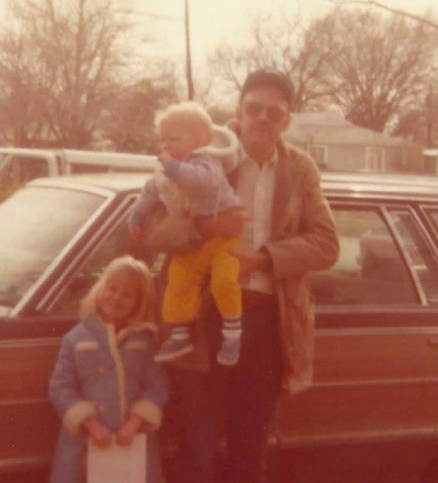
Dad, little brother and me, circa 1979.
My father was genius smart. He probably had an IQ off the charts. Yet, when he passed away at the young age of 50, he was working for minimum wage repairing bicycles. Though a fun, kind and generous man, he had no friends and lived a very lonely life. The only thing he left me of value was an antique bed that wasn’t even his. It was my great-grandmother’s.
Shortly after the funeral, we had to clean out his home. It looked like a bad episode of Hoarders. When I opened the front door, I broke down crying. Not just because of my father’s sudden death. The daunting task of sorting through endless piles to see if anything could be saved was enough to make me short-circuit. Almost everything he owned was set out on a curb for the trash.
That was the sum of his life.
Though he was a prolific and talented writer, I never managed to find any of his writing in all the days sorting through mounds of clothes, gadgets, books, papers, and trash. The only work I have of his are the ones I memorized and a handful of notebooks with unfinished stories or poems.
In the case of my father’s passing, fear became a double-edged sword. Fear I’d end up like him was stronger than fear of failure or being mocked by others to pursue being a writer. It saddened me that someone of so much talent left nothing. He never focused, never finished, never believed in the dream enough to take it seriously. Bluntly, he did more whining than working.
This fear drove me to examine where he went wrong and make corrections in my character. I was a lot like him both in good ways and in bad.
The good? He was intelligent, generous, kind, loved to read and he was the most fun person anyone could know. Neighborhood kids who friend me on Facebook tell stories of my father dropping everything to fix their bikes because their families were to poor to replace the shot gears or the trashed tires. Thirty years later these kids (now adults) still remember my father fondly.
My dad’s passion for reading and writing was passed to me at a VERY young age. While other kids were reading Judy Blume, I was reading Tolkien. I was published the first time at age eight in a popular children’s magazine.
My father was also very humble and fun and rarely serious. It was NOT uncommon for me to come home from college only to be attacked from the bushes with a long-range high-powered water gun. Here’s this 49 year-old man who was goofy enough to ambush his daughter with a toy.
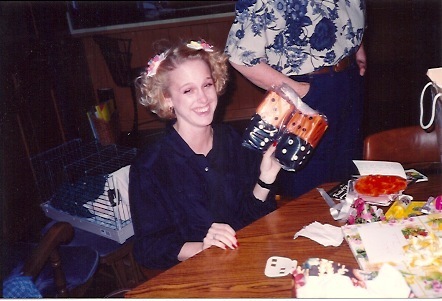
Dad gave me fuzzy dice for my first car. Ha ha ha ha ha.
The bad?
My father wanted to please his family more than he wanted to be a writer. He wilted in the face of any criticism. In wanting to please everyone, he pleased no one, including himself and the consequences were steep. He feared failure so much he never tried, thus sealing he would fail anyway.
I was doing the same thing. I was in a job I hated because “it paid great money” and had lots of perks and made my family Oh so proud. Let’s just ignore that I had to pull over to puke on the side of the road every day because of the stress, because I hated my job with every fiber of my being. It was a fabulous job…for someone else.
I was paralyzed by the fear of failure to the point I was willing to work a job the world believed was “acceptable.” I crumbled at any hint of criticism. I lived my life by committee and was a wreck because of it.

Image courtesy of Jenny Kaczorowski WANA Commons
The fear of ending up like my dad served its purpose for a time. It helped me stand up to family when I decided to leave the corporate world to become an author. I studied my father’s missteps then did the opposite. Where he retreated, I plunged ahead. My father was all about escape—music, books, books, books, TV. Ignore the real world and get lost in a fantasy. He neglected his writing, his home, his dog, his life to be…elsewhere. Like the grasshopper and all play no work.
This drove me to become self-directed, self-motivated, disciplined…and neurotic.
While it’s good to examine what we fear, we risk going to the other extreme. Fear, in many ways, is like a family dog. Trained properly it can defend us and keep us from harm. Yet, if we don’t keep it leashed and make it “heel,” it will chew on our souls and pee on our dreams.
Fear of Ourselves

Image via Frank Selmo WANA Commons
When I examined my father’s strengths and weaknesses I witnessed my own. Yes, I was blessed with a sharp mind and talent. But, I let others have too much sway in my life. Why? The only one who’d face the consequences was ME. It’s hard to share this, but I was lazy. I believed more in luck and opportunity than hard work. My locus of focus was external. I blamed people and circumstances for where I was or wasn’t.
If I had a computer then I could write.
If I didn’t have to work a day job then I could finish the novel.
If others would take me seriously, then I’d be more “inspired.”
I relied too much on inspiration and underestimated the power of perspiration. I wanted the “Seal of Approval” from the outside world before I could do anything.
Lately, I have been on the opposite side of the spectrum. I’ve realized that fear has chewed through its leash and gutted my couch self-esteem. I can accomplish a hundred things in a day, yet have come to see I’m only noticing the ten I missed. Self-examination has shifted to self-deprecation.
And this will happen. It’s natural. But why I’m blogging about this is I want you (and even me) to be alert. Watch for the read flags that good fear has turned on us.
My family had the Autumn from Hell in 2013. Two family members with MAJOR surgeries. My mom had a hernia so bad they almost thought they couldn’t repair it. My sister-in-law nearly went blind and had to undergo one of the most horrific and painful surgeries anyone could endure to repair her detached retinas. My grandmother passed away. I’d just about come up for air and then something else would knock me to my knees.

Image via Flickr Creative Commons, courtesy of Anamorphic Mike.
At the beginning of the year, we thought we’d be able to recuperate. Ha ha ha ha ha ha. The big trucks where my husband works all went down at the same time. No trucks? The company goes under and the company has only one mechanic.
My husband is trained in diesel engines. He’s worked 60-70 hours a week for the past month with one day off, meaning I’ve had one day off. Since Hubby’s gone most of the time, I do all the cooking, cleaning, shopping on top of running a business and writing…with virtually NO break from The Spawn.
To add a new layer of difficulty the washer died. Hubby can repair it, but he doesn’t have time. This has left me lugging loads and loads of laundry to a nearby laundromat. Also, a few days ago, my other grandmother was rushed to the hospital with a life-threatening and unknown infection. The stress has been crushing (part of why I added in vigorous exercise).
I’ve been working my tail off. Any time I sit down for five minutes, I hear the voices. You’re just not trying hard enough. That ten minutes you sat down? You could have been cleaning, working, writing, coming up with a cure for cancer.
I recognize that one of my early character flaws was laziness. But in the past couple days, I’ve come to recognize that I’m teetering on the other extreme. It’s great to be a hard worker, to be disciplined. But rest and play are vital to maintain balance, mental health and joy.
Fear Will Drag Us To Extremes If We Permit It

Image via Flickr Creative Commons, courtesy of FromSandToGlass
Fear is a riptide. Swim with it or allow it to drag us under. I can be so afraid of being lazy I become a workaholic. So afraid of being irresponsible I become over-responsible and even controlling. Fear can drive kids of obese parents to eating disorders, children of abusive parents to being far too permissive, offspring of broke parents to be obsessed with accumulation of money and on and on.
The trick is to face what we fear and see it for what it IS. Almost all of us fear failure, but failure is the tuition we pay for success. We can fear criticism, but criticism is a fact of life. Fear of criticism can lead to perfectionism or passivity. Conversely, criticism can help us toughen up or even become stronger, better or more resolved.
What’s the answer? First, be self-aware. Many of us bee-bop through life going through the motions without inspecting the why behind our choices. This is dangerous. Fear is both good and bad. What changes the nature of fear is how we are using it. Are we using fear to be proactive or are we being reactive? When we’re proactive, we’re acknowledging fear and taking positive steps. We hold the leash. When we are reactive? Fear has a leash on us.
Fear is a feeling, which means it can lie. F.E.A.R. can be False Evidence Appearing Real. Evidence requires examination. Do we hold onto it or dismiss it? I feared ending up like my dad. That I would value pleasing others so much I’d live an empty life.
We cannot live the dreams of others and be fulfilled. This was positive fear. The evidence of my father’s choices showed me the truth of what happens to someone too afraid to fail. That evidence was real and worth holding onto. I also had to examine what he did right and grab hold.
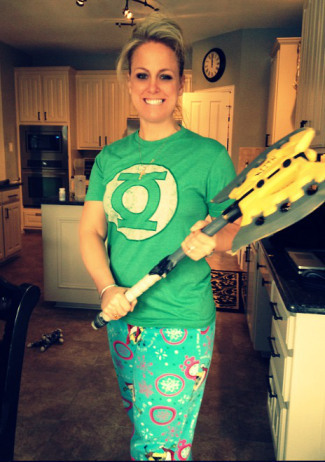
WHAT??? Yes, I am an adult. Most of the time.
Unexamined fear can become The Hamster Wheel of Doom. The HWOD tells me I suck because I’m not a fitness model with an immaculate Martha-Stewart-decorated-home, twenty best-selling books, a mansion and I’ve failed to travel to Africa twice a year to feed the starving children.
That’s false fear.
[image error]
“Meet Spiffy the Hamster.” He’s DEAD.
Original image via Dan Derritt Flikr Creative Commons
If I asked any of you right now to take out a piece of paper and write down all that’s wrong with you, I’d wager most would have twenty pages. But what if I asked what’s right with you? Bet you’re stumped, too.
We all struggle. Struggle can be good. Resistance is what makes us grow. But if we only focus on what’s wrong with us, we’ll just get more. We are what we focus on.
In racing, part of how they train drivers to win is teaching the driver to acknowledge the wall, but never look at it. The car goes where the driver looks. Look at the wall and you’ll hit the wall. Focus on the finish line.
All of us have our “wall.” Mine is laziness, people-pleasing, blind loyalty, procrastination, and I could list even more. I recognize them. I respect them. But I must focus on the positive. I am also disciplined, kind, generous and passionate and these qualities deserve my attention. If we focus enough on developing the positive, it will eventually crowd out the negative.
We also must learn to focus on the realistic. I am human. It’s okay to take a nap, play some video games, or read a book. There will always be more laundry, more dishes. But at the end of my days will I remember the clean dishes or the hour I spent running through the house with The Spawn with NERF guns “hunting zombies”? I can focus on the negative legacy my father left, but that might cost me the positive legacy he gave me.
I will never be too old to enjoy a bounce house.
[image error]
I rented a bounce house for the WANAs in LA. Writing is a “serious” business after all.
What are your thoughts? Who has the leash? You or your fears? Do you find yourself being reactive? Too hard on yourself? Do you struggle to list what’s good about who you are? Is it hard to have fun? Do you feel guilty for rest? Is it tough to cut yourself slack? Do you find yourself maybe going to extremes because you fear being like a parent or other adult influence? Or maybe you’ve made positive changes and you’re afraid if you take one day off you’ll slip back into what you worked so hard to change?
I LOVE hearing from you!
To prove it and show my love, for the month of March, everyone who leaves a comment I will put your name in a hat. If you comment and link back to my blog on your blog, you get your name in the hat twice. What do you win? The unvarnished truth from yours truly. I will pick a winner once a month and it will be a critique of the first 20 pages of your novel, or your query letter, or your synopsis (5 pages or less).
For a LONG-TERM plan for a fit, healthy platform, please check out my latest book Rise of the Machines–Human Authors in a Digital World.


March 3, 2014
Suck It Up & Writer Up—Preparing for Greatness
Social media doesn’t work. Blogging doesn’t sell books. We’ll have to put out massive amounts of time and effort for no pay-off. We’ll have to learn HTML and how to manipulate algorithms to succeed and this is all for nothing. If we blog, we must write Pulitzer-quality content, but don’t bother. No one will read it, anyway.
Social media and blogging are the most soul-sucking, life-draining tasks we’ll ever have to do as authors. Quit while you can. If you aren’t already a mega-best-selling author, no one will care about you, your work or your blog.
Feel inspired?
Unless off the grid traveling, I’m always engaged with social media. I keep my “finger” on the pulse of what’s happening in my platform. Over the weekend, a Twitter follower shared an article and asked me for my thoughts.
I won’t even bother linking to the article because my goal here isn’t to put anyone down. The author of the article clearly felt overwhelmed, exhausted and disillusioned and that’s par for the course in what we do.
I can appreciate how dreadful the writer who wrote this post must feel. In fact, I never wanted to be a social media expert. I wanted to write novels. But, early on, when attending conferences and reading blogs from experts, I could see where their advice was headed.
While these experts meant well and truly wanted to help, I believed their approach was more likely to turn writers into cutters than to sell truckloads of books. I knew social media would be the ultimate game-changer, so I put aside my fiction and set a new course.
Are They Wrong?
We can debate right and wrong all we want. I feel there are likely people who use algorithms, automation, promotion, contests, newsletters and technology and are very successful at it. But this isn’t a One Size Fits All World. There are millions of people who believe in living a vegan lifestyle and actively try to convert me.
Granted, I’ve never met a veggie I didn’t love, but the simple fact is I have so many food allergies this diet would kill me. I’m not particularly a meat-eater (Psst, Don’t tell the other Texans.) But, with horrible allergies to gluten, soy, legumes and most nuts? Going vegan is an option that would make me ill, weak, and leave me malnourished.
Does this mean all the vegans of the world are wrong? Well, that’s really not what we are here to discuss. It’s an anecdote to make my point.
Here’s another while we’re here.
In college, I had friend who had the same go-to-diet every time she gained weight. Stop eating, start smoking and drink lots of Dr. Pepper. Granted, it was tempting in those years to do The Marlboro-Dr. Pepper Diet, myself. I struggled with my weight despite many, many hours at the gym and eating healthy (I didn’t realize I was allergic to gluten and dairy and that’s why I remained “fluffy.”)
It was gut-wrenching to see her svelte and thin while I wore stretchy pants. But, deep down, I knew The Marlboro-Dr. Pepper Diet was flawed. It worked short-term, but I knew it would have long-term, devastating consequences.

Image via Flickr Creative Commons, courtesy of Zoetnet
This is how I feel about social media. WANA is a balanced approach to social media that works with the strengths of a writer. I imagine most of you aren’t doing this “writing thing” until your dream job in high-pressure sales comes along. But WANA is not The Marlboro-Dr. Pepper Diet. You might not see big results for a long time, but your platform will be fun, healthy, and stable.
Thinking Long-Term
Recently, I’ve started the P90X program (I started it once before then gave myself EPIC tendonitis pushing a crappy mower and working in the yard). I had to stop and do yoga for about a year to allow my joints to heal enough to try again. Due to my food allergies, I already have a fabulous diet. In fact, when I went to the doctor a year ago at a Size 16 and 180 pounds, I brought my food journal and exercise journal for the previous six months.
The doctor was floored. Unless I was lying or had something hormonal going on (Thyroid?) someone with this lifestyle should NOT have been 5’3″ and 180 pounds.
I was working out, no alcohol, no sugar, GF, dairy-free, non-GMO, organic, no soy, good carbs and yet I was FIFTY pounds overweight. They did an extensive blood panel and I was textbook perfect health—aside from having three @$$es when I should have only had one. The doctors were puzzled and so was I.
Knowing my history with food allergies, I cut out eggs and my weight began to drop. Then stopped. And there was another thing that disturbed me. I’ve always been someone who easily put on muscle, but I had no tone. NO muscle. Sure I was in a Size 6-8, but I was soft despite being active.
So, I revisited the P90X and, before starting, I calculated how many calories their plan wanted me to ingest.
2400 CALORIES? ARE YOU OUT OF YOUR MIND??????
But, I figured I’d done it my way long enough, why not try? For me, the biggest challenge has been the eating. What I’m eating is the same, just A LOT MORE and MUCH MORE FREQUENTLY. I’ve had my mind screaming, You’re eating too much! You’re going to be back at a Size 16!
But, I tried it…and have lost roughly a pound a day. Also, I felt these lumps after a few days. OMG. Tumors? No, MUSCLES. I’m finally getting definition in my arms, shoulders and back.
And sure, 2400 calories is easy if we are eating garbage. But try getting 2400 calories of green veggies, lean protein, and limited complex carbs. Last night, I made my final chicken breast and kale and it was so hard to eat, because I’ve been in a bad habit of not eating enough.
But what do I want? Do I want to keep wearing a Medieval Torture Device (Spanx) to keep my tummy tucked in and back-fat smoothed down? Do I want to keep hiding my beefy arms under cardigans? Do I want to keep relying on caffeine for energy? No. So, in my mind, Suck it up, Buttercup.
Our bodies and our platforms reflect what we feed them and how often. Starvation and junk yield weak and ill. Thus, we always should ask, “What am I feeding my writing/platform?”

THIS?
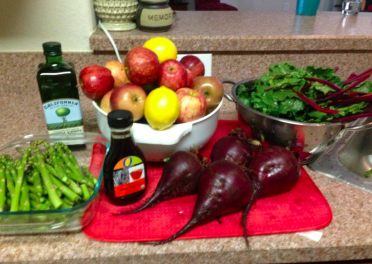
Or THIS?
At first, it might not be easy. Just like clean-eating, it might take time for the digital “taste-buds” to catch up (and even crave) the wholesome stuff over the empty junk. This is a process.
Our Author Platform is a Living Thing
WANA platforms are designed to be organic and grow as you grow. They don’t rely on algorithms, automation or technology. They are immune to fads and work on any social site we choose. How?
Platforms cannot grow and thrive long-term on empty-calories automation and algorithms. We must be present and vested. There needs to be a human behind the tweets and posts. People sense automation and they either ignore it or resent it.
And sure, filling out a bunch of automation ahead of time seems easier, but it’s the digital equivalent of The Marlboro-Dr. Pepper Diet. Short-term we might feel spiffy, but later? BLURGH.
Once the short-term wears off, we’re left exhausted, worn out, angry, grumpy and eventually will fail to see results at all.
Want Your Blog to Grow? FEED IT FREQUENTLY
When P90X tells me to eat every 2-3 hours, it’s a hassle. I won’t lie. I’ve never been a breakfast-eater, probably because most breakfast foods were poison for so long (eggs, dairy, wheat). When I started this, I literally had to force myself to eat when I wasn’t hungry.
Good thing, though, is that P90X isn’t asking me to sit down to a seven-course meal 6 times a day. It can be three ounces of chicken and a cup of veggies, an apple, a protein bar, a handful of almonds. Small, meaningful meals regularly and consistently for long-term results.
The same can be said of blogging. In my book, I teach how to blog in a way that is very easy and will connect to readers. In fact, it can take as little as 15 minutes a day. Why? I’m not asking you to serve up an article worthy of The New York Times. I’m asking for the digital handful of almonds.
The same goes for any platform. We can tweet a handful of times a day, five days a week and that’s plenty. We can post two or three times a day during the week on Facebook. That’s plenty. Will we see earth-shattering results Week One? Likely not. But good choices over time accumulate into major results.
I love you guys and I sincerely want for you to succeed. Whether we like it or not, social media is our lifeline. It’s been one of the single largest factors for more authors earning money off their work. Thus, if we need this platform for long-term success, we need to feed it good stuff regularly for long-term health and fitness.
Writer Up—No One Can Do This FOR Us
Just like I can’t outsource my health and my body, we can’t outsource our platform. Promotional companies and PR firms simply no longer have the power they used to in a world ruled by Media Gate Keepers who stemmed information flow. Are they valuable? Sure, but we have to do the building first. They can’t do it for us.
I’d love to pay some gym bunny to do my workout for me. Can I pay her do the squats, crunches, stairs and burpees and magically my whittle my butt down to something bikini-worthy? Would that not be COOL? No work on my part, just fork out money and wait for RESULTS.
Sadly, it doesn’t work that way at the gym or on-line.
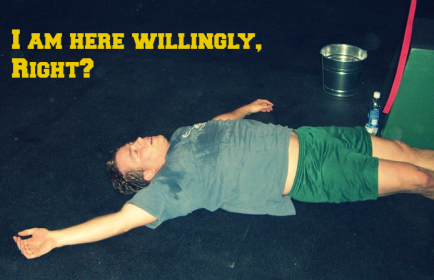
Original image via Flikr Creative Commons, courtesy of Crossfit.
We need to Writer Up and show up. And to continue the analogy, I wish I looked as awesome as those folks on my P90X DVDs. Sadly, I probably resemble a chain-smoking Water Buffalo with a hangover. I can’t do all the reps. I have to take it easy in places to avoid flaring up my tendonitis. Some moves? I can’t even use weights. It is a sad…sad……..sad sight.
It may be pitiful, but it isn’t permanent ;).
I don’t have to do all the reps and all the moves. I merely have to show up. So much of social media is simply showing up. That simple. But simple isn’t always easy. My early blogs were just as ugly as these early workouts. But, I kept showing up and it made me faster, leaner and stronger. Success in anything? We can’t pay for it or wait for it we must work for it.
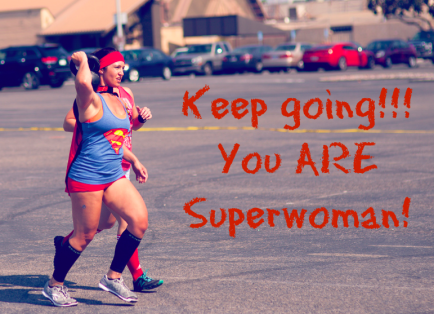
Original image courtesy of Flickr Creatinve Commons, courtesy of Ali Samieivafa.
There are NO Short-Cuts to ANY PLACE Worth Going
I’d love to come up with a “Social Media Shake-Weight.” You know, some goofy “fast-results” system I could sell for BIG cash. Unfortunately, I have a conscience and vested interest in your success as writers and as people. I can’t hand you a fancy algorithm or Guaranteed 20 Step Plan to be a NYTBSA.
Why?
Because I know many of you possess the talent to take you over the moon, but it will be character that will keep you there. I’m not in the bottle-rocket business. I want to ignite stars that burn for generations.
Social media is more than selling books, it’s learning to forge relationships, be positive even when the world is caving in, showing up when you want to stay in bed, doing the work when no one notices any results and thinks we are fools. Social media, blogging and writing teach us patience, tenacity, flexibility, self-discipline and to keep pressing for what we say we want.
It would be easy to be a writer if all we had to do was finish a book and then hand cash to a promo team to make us zillionaires. But that isn’t reality. This business is tough. It weeds out the weak, the self-centered, the impatient, the undisciplined and those who are writing for the wrong reasons or who complain, whine and are unwilling to sacrifice. Yet, on the positive side, social media, blogging and writing rewards the faithful, the diligent, the committed, the humble, the giving and the kind.
In the end? We are not alone. Yes, we need a platform, but no one said you had to do it by yourself. That’s what WANA is all about.
What are your thoughts? Do you get overwhelmed? Do you think you need to do a lot of EVERYTHING and it’s leaving you burned out? Have you learned to be faithful with baby steps? I know I am still working on that. Do you feel pressured? Like nothing you do matters? Or, have you come to that place where you’re willing to Writer Up?
I LOVE hearing from you!
To prove it and show my love, for the month of March, everyone who leaves a comment I will put your name in a hat. If you comment and link back to my blog on your blog, you get your name in the hat twice. What do you win? The unvarnished truth from yours truly. I will pick a winner once a month and it will be a critique of the first 20 pages of your novel, or your query letter, or your synopsis (5 pages or less).
For a LONG-TERM plan for a fit, healthy platform, please check out my latest book Rise of the Machines–Human Authors in a Digital World.
March’s WINNER—Christina Delusions of Humor
Please e-mail me your 20 pages (5000 words) in a WORD document to kristen at wan a intl dot com. Or a synopsis (750 words MAX) or a query letter (250 words). Congratulations!


February 27, 2014
Is Your Subconscious Mind Setting You Up for Failure?

Image courtesy of Cellar Door Films WANA Commons
In my last post we discussed striving to find balance and giving ourselves permission to be imperfect. This brought about some interesting discussion and I’d like to expound. I confess. Americans are notorious for “shortening” the language.
We use a lot of words as synonyms when, truth be told, they aren’t. Or we have “blanket words” which mask truth, thus prevent us from making progress in life, with relationships, our career or even ourselves.
As writers, we of all people should appreciate the power of words. We have the ability to create entire new worlds that could possibly endure hundreds or thousands of years…all by using various combinations of symbols. Words have creative and destructive power. This is true in non-fiction, fiction and in life.
When I began college, I was on scholarship to become a doctor, thus spent over three years as a Neuroscience Major. Though I eventually earned my degree in Underwater Basket-Weaving (International Relations/Economics), I’m still a geek when it comes to science.
I subscribe to Popular Science, Popular Mechanics, Discovery Magazine and inhale science books like candy, but brain science is of particular interest to me.
Did you know, for instance, that our brains cannot discern the difference between truth and lie? So, if we walk around with a self-dialogue that says, I’m just going to fail. I never finish what I start. I can’t do this. Our brains metaphorically shrug and say, “Okay. As you wish.” It is the human will that makes the difference, and will is guided by self-talk and belief.
I love leadership books and self-help, and I know they catch a lot of flack. I don’t buy the Think It and It Will Happen because this is only part of a much larger equation. We still have to put in the sweat equity. BUT, self-talk can act as an internal guidance system, which means we have to be careful of our thought life as well as what we tell ourselves and others.
Another interesting fact is that the human brain begins listening at the first ACTIVE VERB. I see this bungle in advertising all the time.
Don’t forget to sign up!
When does the brain begin listening? What is it really “hearing”?
Forget to sign up.
Changing how we talk to ourselves and others can make a HUGE difference. Instead of saying Don’t forget where you put your keys, replace that with Remember where you put your keys. You’ll be surprised how much your “memory” will improve.
Blanket Words
Blanket words are particularly dangerous because of their vagueness. We cannot change our self-destructive behaviors, rid poor habits, gain better habits, achieve or even properly communicate if we get lazy with the language. All right, maybe some can, but life can already be tough enough, why make it tougher?
I’ve told this story before, so forgive me if you’ve heard it. Part of how I became a writer is I have HORRIFIC food allergies, which often can be diagnosed as other illnesses. In my case, I was misdiagnosed with epilepsy.
The misdiagnosis destroyed my career and wrecked my immune system. I’d had pneumonia three times in a year and couldn’t get well. I lost everything and had to move in with my mother, which was humiliating and demoralizing.
I recall my mom coming into my room one day and I was still in bed. I’d always been a neat-freak. In fact, when I was in sales, I once moved and the movers were shocked it took less than three hours to move me and took less than four hours for me to completely unpack. They teased me that I was the “House the Rubbermaid made,” meaning everything was neat and organized and labeled and in an appropriate box.
So fast-forward to me living with my mom. Laundry everywhere. I couldn’t have found my own butt without GPS and a flashlight. I’m still in bed. All I want to do is cry and OD on chocolate. My mom comes in and asks if I am depressed. This was an A-HA moment for me.
I said, “No, I’m overwhelmed. I’m angry. I don’t know where to start. I’m heartbroken.”
For the first time, I refused to use this blanket word depressed. I spoke aloud the truth of what was really happening inside and, for the first time, this empowered me. What could I do about being “depressed” other than maybe take meds and go to yet another shrink who wanted to talk about my childhood and have me journal to my Inner Child? (I walked out of the last psychiatrist’s office the second she mentioned “journal.”)
And journaling might have been productive had I been being specific instead of playing the internal violin and using nebulous words like sad or tired or depressed. When I finally confessed I was overwhelmed?
Well, Kiddies, we can do something about that.
We can make lists of everything that is scaring the bejeezus out of us and break those frogs down into manageable parts for positive change. Anger? We can confess that and let it go. Figure out WHY then change that, too. Tired? Are we really tired or are we disillusioned, overwhelmed, or wounded? Maybe we are simply dehydrated or need more exercise and sleep.
I was really proud of my mom the other day. She works a tough job as an RN. Instead of saying, “I had a bad day” she said, “I had an arduous day.” Note the difference? Bad is a blanket and amorphous qualifier that risks tainting our overall attitude. Arduous?
“Arduous” is limited to the circumstances of that day and even implies a bit of victory because, despite the day being difficult? She MADE IT!
Careful of False Synonyms

Image Courtesy of Jenny Kaczorowski WANA Commons
This dovetails into my next point. There are a lot of words we use as synonyms which really aren’t. For instance, someone might say, “She is such a mature eight-year-old.” No. Maturity is only birthed from experience and, unless this eight-year-old just escaped a concentration camp? Unlikely she is mature. Now, the child might be precocious (seeming older than her years) but she isn’t mature.
She’s still a delicate little kid who needs the support of adults. “Mature” implies she’s earned emotional armor she doesn’t have and often can set the kid up for facing things alone when an adult really needs to be there for guidance and support.
Mad or angry are other false synonyms. What are we really? Disappointed? Ask the tough questions because those yield the best answers and thus can reveal the best plan to remedy the situation.
If I say to my husband, “You are such a jerk and I’m mad at you,” this limits what either of us can do.
However, if I say, “I’m really disappointed. I feel like too many of the plans for global domination and laundry are being left to me and I need help. I’m overwhelmed.” THIS implies a reality which has a plan of action to remedy the situation. Let HIM train the sea monkeys Ju-Jitsu for a change.
Situational Versus Conditional
This brings me to the impetus for this blog. “Striving for excellence” and “perfection” are two different things. If I’m caught up in “perfectionism” notice the “ism” at the end. The —ism is Latin for the condition of things. Alcoholism, racism, sexism. See how this implies a belief and a continuing state rather than an event?
The reason perfectionism is particularly nefarious is perfection is an impossible goal. Thus, when we buy into perfectionism we’re automatically setting ourselves up for failure, disappointment, self-loathing and neuroses. Perfection can’t be attained so the goal can never be reached.
There will always be someone who doesn’t like our blog/book/article. We cannot please everyone. There will always be someone fitter, thinner, richer, more talented, and The Perfection Gremlin goes nuts when faced with any kind of “competition.”
Striving for excellence? Totally different story. We can be excellent without being “perfect.” Excellence ships. Excellence has deadlines. I can finish and let go of an excellent book. A perfect book? Good way to still be editing the same book for a decade.
Perfect steals the life from life and from art. Life is messy and rough and often what we humans love. We don’t like “perfect” people or “perfect” characters because we can’t connect and relate.
Perfectionism is qualitative, where as excellence is QUANTITATIVE. We can’t measure an imaginary ideal. We can, however measure PROGRESS.
Make it a habit to say, “I’m not where I want to be, but I’m not where I used to be. I’m growing every day.” Say it even when you don’t believe it. Eventually the brain with catch up and so will reality.
Tell Me What You WANT
I get onto my mom about this all the time (yet she still loves me and IS improving). For instance, after a major surgery last year, she started working on rebuilding muscle. She’d say, “I don’t want to be an old lady who can’t even get off the toilet.” I corrected her and said, “Okay, now tell me what you DO want instead of what you DON’T want.”
I want to be extremely fit. I want to be an energetic, athletic older woman.
Same with writing. Instead of, “I don’t want to be a failure.” Tell me/yourself what you DO want. And going back to one of the point I made earlier in the post, look at what negative and even positive goals are REALLY telling us if the brain is lazy and only begins listening at the first active verb.
I do n’t want to be fat.
I want to be fit and healthy.
I don’t want to be one of those writers who never sells books.
I want to be a successful author who makes enough off my writing to quit the day job and live even more comfortably doing what I love.
This is why I LOATHE the term “aspiring writer.” Aspiring gives us a pass. It labels us as hobbyists who are holding back out of fear. “Pre-Published Author” comes with responsibility, confidence and a plan of action.
To achieve anything, we must set goals. From finishing the laundry to finishing the novel. Yet, a key component of solid goals is they are positive, actionable and attainable. And don’t let the attainable throw you off. Yes, timing, luck and chance can factor into this. BUT, I can have a goal of, “I will be a NYT Best-Selling Author” and take steps to make that reality…like, um, writing.
Testing What We Believe
One of my first jobs as a writer was I wrote textbooks for teaching forensic writing analysis. To do this I trained for months with investigators studying thousands and thousands of writing samples (and I used to give a super cool presentation on this subject).
The FBI can look at handwriting and tell A LOT about the person and it’s a fantastic way of constructing a psychological profile. Why? Handwriting doesn’t lie.
***And people will say, Oh, but my writing is always different. I have at least five types of handwriting. To the trained eye? Nope. There are fundamentals that will remain consistent.****
I can look at a sample of writing and tell if the person still has her wisdom teeth (there is a neurological hiccup that will give an extra dollop of ink at a particular hesitation mark in rounded letters like “o” once those particular teeth are removed).
The trained analyst can see anger, aggression, level of self-esteem, suicidal tendencies, depression, emotional repression, psychosis, immaturity, narcissism, self-confidence, joy, love and on and on. The “science” (though only a tool and not admissible in court) is truly remarkable and frighteningly accurate.
There was one tidbit of my training that I’ve kept with me for the past fifteen years. In our handwriting (for most people) it is impossible to lie. Our subconscious will tattle on us every time. How? Spaces.
Most people aren’t sociopaths so we kinda suck at lying. If forced to lie in a conversation, one of the ways others spot our lie is in our hesitation.
Where were you?
I was at the movies.
The same phenomena happens when we write. There will be a space if we don’t believe what we’re writing. The bigger the space? The more we disbelieve what we’re “saying.”
Take out a piece of paper and a pen and write things you know you believe versus something you know is completely false (at a normal speed of writing) and look at the difference. I do this to double-check what I believe about my goals and see what I really feel on a subconscious level.
I will be a New York Times Best-Selling Author!
Or?
I will be a New York Times Best-Selling Author
Often I will crosscheck with silly sentences to compare.
I will give up writing for life in the rodeo.
Thus, if I get:
I will finish my next novel by May.
I will give up and go back into sales.
I can cross-compare and SEE what my subconscious believes is truth. And, to be blunt, when I began as a writer? I didn’t believe I’d succeed. I’d write:
One day soon I will be published.
The spaces represent what we either don’t believe, accept or even where we might be emotionally distancing. Other things that might happen in this exercise is, if we don’t believe? We will misspell things. If we believe? We can see !s or even underlines. This shows we really are believing what we are writing.
When I began doing this 15 years ago, I didn’t believe it when I wrote I will be a successful author. I got:
I will be a succsessfull writer
But, as I took steps to learn the craft, build a platform, read, train, and finish, guess what happened? Eventually my belief changed and I could literally measure how my subconscious self was improving over time with this simple exercise.
I went from:
I will be a succsessfull writer
I will be a successful writer (notice the spaces closing and no longer misspelled)
I am a successful writer (Hmmm, no punctuation and still have gaps, but notice the verb change)
I am a successful writer (No more spaces)
I am a successful writer. (Improving)
I am a successful writer! (BINGO!)
I believe that success, finishing, joy, peace, reaching dreams and making them reality begins in the mind. We can only achieve that which we can first conceive. I’m very careful about my self-talk. If I catch myself saying, “Don’t forget to send out that check.” I stop and say, “Remember to send out that check.”
I only permit the positive. I used to chant, “Oh, I am such a failure. Why hope for anything good? I’ll just be disappointed. I’ll never finish this book.” I expected rejection and failure, so guess what I got?
To be blunt, this transition wasn’t overnight. I had a lifetime of bad habits when it came to how I spoke about myself, my situation and others. I had to first be aware of what I was thinking and saying. Then, I had to change that and learn to rephrase in the positive. Changing my way of speaking changed my thinking and then finally my beliefs.
But, it was a process and it’s one that never ends.
Even in the darkest times when life was kicking me in the teeth, instead of playing the Woe is Me tune, I began thinking and saying, “What is this challenge developing in me? In my character? How am I going to grow stronger because of this?” It might even be something as simple as remaining peaceful. We don’t have to be at the mercy of circumstance.
We can’t choose our situation, but we can choose our attitudes. We can change how we see ourselves and our futures. And this is like bathing, it should be done daily. There is no Magic Thought Wand that’s going to transform us overnight. This is a process and a habit and it must be maintained (and paired with work), ergo why I really love that writing exercise. It’s clear when I’m slipping and allowing negativity and doubt and perfectionism to take over.
What are your thoughts? *bada bump snare* Do you have negative self-talk? Are you working to break the habit? Are you conscious about your thought life? Do you struggle with the trap of perfectionism? Are you now terrified I will see your handwriting? 
I LOVE hearing from you!
To prove it and show my love, for the month of February, everyone who leaves a comment I will put your name in a hat. If you comment and link back to my blog on your blog, you get your name in the hat twice. What do you win? The unvarnished truth from yours truly. I will pick a winner once a month and it will be a critique of the first 20 pages of your novel, or your query letter, or your synopsis (5 pages or less).
Also, I hope you guys will check out my latest book Rise of the Machines–Human Authors in a Digital World. THANK YOU!


February 24, 2014
Balancing Writing & Life—The World Rewards Finishers NOT Perfection

Original image via Lucy Downey from Flickr Creative Commons
The world around us is always pushing this notion of “perfection” and, I don’t know about you, but sometimes I wonder what “reality” looks like. All the models are tall and thin and young with poofy lips (and men have their own variety of the super model stereotype). They have fabulous clothes and new cars and go on expensive vacations.
Even our homes! When I look around my house that’s littered with toys, my sink full of dishes and two baskets full of laundry (even though I just DID laundry) I wonder what a real home is supposed to look like? Where do I fit? Sure NOT on Pinterest.
Granted, there are areas I KNOW I am slacking (*cough* Christmas tree is STILL standing) and let’s not talk about the state of my drawers and closets. But, I generally (when the washer ISN’T broken) wash the sheets 1-2 times a week. I make the beds. I clean the toilets all the time because Spawn is 4 and we are still working on AIM.
[image error]
Pippa claims she is “helping” with laundry. Right.
But I am nowhere near the homes in magazines or on TV, even though I live in an apron. I will never wear skinny jeans and I am unwilling to go into crushing debt to keep up with a world who portrays a “reality” that is geared to make me emotional, make me feel inferior and therefore buy stuff. Or work more, do more, more, more, more.
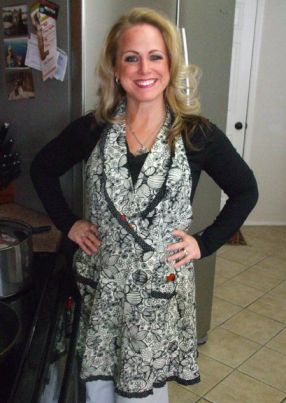
I live in my apron, but usually no makeup and hair in a scrunch-ee.
Why do I bring this up?
Because perfect is an illusion. There is no such thing. Our society has gotten into this GO BIG OR GO HOME attitude, and sure, that might be okay in one or two aspects of our lives…but ALL OF IT? I cannot look like a fitness model, write 4 novels a year, have perfect social media, make crafts with my kid, volunteer, drive a BMW and have a house that should be featured on HGTV.
Maybe you can. I can’t and won’t. Not worth it.
Thus, we need to list our priorities and it is okay to let the other stuff be less than perfect. But, in light of this argument, I also want to say this isn’t a pass to be lazy or mediocre. We should strive for that nice healthy balance. When we get out of balance, something or someone will suffer. I have to be careful I don’t get so focused on writing and business and cleaning that I forget to be a mom.
I have to take out time to run with Spawn through the house with NERF guns looking for zombies. The dishes will be there. I know. I’ve tested this hoping they’d disappear but they apparently mated and made more.
Writing
You want to be a writer? Great. Here’s the good news. If you’re writing, you’re already a writer so stop the angst. Just do it. This is one of the reasons I am such a huge fan of blogging. Writers write.
My mom can post on Facebook and The Spawn has been known to tweet, but neither of them blog….because they aren’t writers. Blogging is training for the professional pace.
Blogging is THE most stable form of social media and it trains us to be better writers. We can write leaner, meaner, faster and commit. No Writer Warden is going to show up and take us to jail if we don’t blog/write. To be professional, we have to be good at keeping and meeting self-imposed deadlines. Not only does blogging make us better writers and create a stable platform, it also trains those self-discipline muscles.
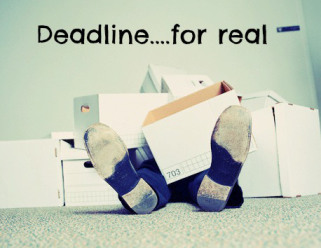
Original image via Flickr Creative Commons, courtesy of Stoere Schrijfster.
Even if you don’t blog, commit to writing something daily. Write a 100 words, then work up to 200 then 500. When I started, 1000 words was SO HARD, so I started with 100, but it was a beginning and we all start somewhere. The trick is to START.
Give Grace
I’ve read writing books and inspirational/leadership books that I wanted to punch. The last leadership book I read, the author talked about the importance of taking time to think, how he goes to his office and just sits in the quiet and thinks for an hour by himself in his special thinking chair. How cute.
I can’t even go PEE alone. 99% of the time, I have two cats and a dog fighting for attention while The Spawn hits me with a sword or begs me to help him level up on Angry Birds.
Can I JUST go to the BATHROOM….ALONE?
Whenever I hear of an author who recommends traveling to a location for a book and staying there a month or two to absorb the experience? I think, “Sure. Uh huh.” And this isn’t to be negative, because I do have that as a goal. But, for most of us, that won’t be reality for a long time, if ever. But we still have to get the words on the page. We might have to use Google Earth, Google Images, or tweet a friend in the UK to help be our eyes and help us with setting and dialogue.
And the point of all of this is the best time to do anything is NOW. Just something. Don’t wait to be perfect. Just start. Baby steps are steps and one of the reasons I feel so many of us fail is because we buy into the lie that those tiny steps don’t count. That if we can’t GO BIG, we aren’t trying hard enough. That’s ridiculous and wrong.
Learn to SHIP
Blogging trains perfection out of us. Ship. Too many blogs falter and countless books are never finished because we’re too focused on perfection. There’s no perfect book. I could win a Pulitzer and still have people who hate my book.
Finished books are far more valuable than perfect ones.
The house? Hey, if I can keep from making an episode of Hoarders? Score! Sure, my goal is to organize a drawer a day, week…ok month. But I can make my bed. My finances? My goal is to be completely debt free. I can start by not making more debt. For instance, I’m going to the Laundromat until I can save for a new washer.
My body?
I already eat clean, because I have a zillion food allergies. But, I haven’t been working out like I used to. Why? Because I was an IDIOT. I was caught up in the GO BIG OR GO HOME and gave myself such bad tendonitis that I had to lay off all exercise, other than maybe walking or yoga, for over a YEAR to fully heal.
I decided this weekend to revisit the p90X workout. I’ve done it before but I pushed too hard and injured myself. This morning, even though The Spawn was up all night and I had no sleep, I got up to my alarm and started. Did I do the whole thing perfectly? Nope. Was kind of a flabby train wreck, but I did it.
The trick to all of this is to:
Contemplate what is TRULY important. Might have to sacrifice the immaculate house for a finished novel.
Make a plan and one that is BALANCED. Somewhere between mediocrity and insanity is a nice happy place.
Give permission for failure. Failure teaches far more than success ever has.
Learn to ship.
Be a finisher. My mantra is “The world rewards finishers not perfection.”
Finish small and eventually we’ll finish big.
Just start. If we have a hiccup? Life blows up? Just start again. Simple.
I want all of you to reach your dreams and still have sanity, friends and a happy relationship/marriage/family. No perfectly clean house, no amount of money, no number of best-selling books can take the place of what’s really important. But, beyond that? REACH.
Ignore a world that’s out to tell you you aren’t trying hard enough and you aren’t good enough. YOU ARE. One foot in front of the other and celebrate the little things, because all the universe is constructed of tiny things ;).
The largest, brightest star is still made up of tiny atoms of Hydrogen and Helium. Every book is made up of a combination of 26 letters. Every healthy body is the cumulation of small, sound choices. Baby steps. Relish them and celebrate them.
Anyway, what are your thoughts? Where do you struggle? Are you bad about All-or-Nothing Thinking, too? Do you tend to go to extremes, either overdoing or being a tool slacker (raises hand)? What ways do you keep yourself pushing on? How do you handle setbacks?
I LOVE hearing from you!
To prove it and show my love, for the month of February, everyone who leaves a comment I will put your name in a hat. If you comment and link back to my blog on your blog, you get your name in the hat twice. What do you win? The unvarnished truth from yours truly. I will pick a winner once a month and it will be a critique of the first 20 pages of your novel, or your query letter, or your synopsis (5 pages or less).
WANACon Winners
Rafflecopter Winners who won a REFUNDED Conference Fee
FREE WANACon Registration:
Kathy Wagoner
MJ Pullen
Kelley Conrad
Working on refunds today. CONGRATULATIONS!
Here are the three winners for MY Contest:
Grand Prize of Book/Brand Combo: Gry Ranfelt
Book Prize: Jacquie Biggar
Branding Prize: Shan Jeniah Burton


February 20, 2014
Author Branding—Harnessing the Power of Digital Age Storms

Image via Wikimedia Commons
Ahhh, the new buzz word, BRAND. What exactly is an author brand? Great question. Branding has gone through a major transition over the past decade. The globe is more interconnected than ever in human history and this trend is increasing exponentially. We’ve seen the fall of major gatekeepers and a complete shift in consumer buying patterns, making discoverability a nightmare in The Digital Age.
Proper branding is one of THE most critical elements of author success. Brands that are outdated, boring, rigid, abandoned, fractured, negative or nonexistent are not only unhelpful, but they can spell disaster to our career and eating earning potential as artists. An author brand has to fit in the new paradigm. If we live in a world that’s changing hourly, our brands have to be able to bend and move and shift with changes.
Being a total history nerd, this makes me think of that definitive battle between the Spanish and the English when King Phillip II made an unsuccessful attempt to invade Elizbethan England. At the time, there were major tactical and technological shifts regarding the way that battles at sea were conducted.
The Spanish Armada was the shining example of traditional sea warfare—towering ships that were more like floating fortresses. The galleons rode high out of the water, making them slow, not very maneuverable and difficult to sail.
On the other hand, the English captains (in particular Francis Drake and John Hawkins) relied on a new form of “race ship”. “Lower in the water, with a long prow and much reduced fore and after castles, these sleek ships carried more sophisticated forms of rigging, enabling them to sail closer to the wind, making them faster and more maneuverable than the Spanish ships.” ~BritishBattles.Com
Long story short, the English ships could take advantage of the elements (high winds, rough seas) and were far more maneuverable. The Spanish fleet was too bulky, and, when battered by North Sea storms? Very expensive gold-plated splinters. Spain lost almost their entire fleet and this defeat of the Spanish Armada marked the rise of the English Empire.
Why do I give this story? Other than it is COOL?
Brands in The Digital Age are encountering the same tactical and technological changes. We are no longer part of the rigid, massive, virtually immobile TV-Industrial complex. We need to be innovative, creative and build a brand that can harness change instead of being splintered by change. Algorithms shift constantly. Social platforms come and go and change tactics. Trends shift. Tastes shift. We need to be able to use these changes to power momentum.
As you know, tonight is the beginning of WANACon (details below) but we always launch with PajamaCon, which is FREE. We are going to hang out in jammies, have fun and I am going to talk about what it means to create an author brand.
• What is an author brand?
• How has branding changed in The Digital Age?
• Outdated and ineffective branding approaches.
• How much time should we invest in branding?
• What are ways to keep a brand flexible?
• Practical ways to grow our author brand.
WANA is all about helping authors, so PajamaCon is our gift to you. I’ve done all the dumb stuff so you don’t have to. There are ways to brand that will make you cry and end up curled in the fetal position with a bottle of tequila. It’s much better to start building properly than to have to rip down to the foundation and start all over. Brands take time to build, so even if you’re just now working on that first book? BEGIN TODAY.
Yes, branding is critical, but a good book is as well. I can tell you as a long-time content editor that it can be VERY costly. This is why I have added in some killer prizes for attendees.
You, me, your book, bandages and suture-kits. Either I can help you fix a book that’s not working or plot one with you that WILL. So if your book is on life-support, DOA or you’re lost and can’t find your original idea? I can help. If your brand/blog makes you want to hurl yourself into a leaf-chipper (been there), here’s your chance to get one-on-one time with moi for some help.
CONTEST DETAILS
So, WANACon is here. PajamaCon is a gift (CLICK HERE FOR INFO) and gives you a chance to make sure your computer is set up properly if you choose to join us for the conference. If not? Still a fun time and a chance to learn. SIGN UP for WANACon HERE. Also, AGENT PITCHES are available. You can SIGN UP HERE.
Since my goal is to see you guys succeed, I am offering three BIG prizes for WANACon Attendees. Grand Prize is The Book/Brand Combo. I will personally consult to either assist in plotting a new book or fixing one that doesn’t work. I will also consult you personally on your brand and give you a plan for SEO, content, everything. Book Prize is I work with you to plot or fix a book. Branding Prize is I personally consult you on your brand, teach you about SEO and lay out a plan.
EVERYONE who attends WANACon automatically gets ten entries. Encourage a friend to sign up and you earn 25 additional entries and the friend who signs up gets 15. Just make sure to tell us who referred you. WANA is committed to helping you realize your dream.


February 17, 2014
Show Me the Money–What’s the Skinny on Author Earnings?
Via Flickr Creative commons, courtesy of Tax Credits.
My degree is in Political Science with an emphasis on Political Economy. To earn this degree, I had to study a lot of statistics *UGH* and to be blunt? I agree with Mark Twain, “There are lies, damn lies and statistics.” Surveys and statistics are a science: number of participants, number of questions, phrasing of the questions, nature of the sample group, geography, etc.
Yada, yada, yada.
But somewhere in the numbers is some truth, which is why I asked one of our WANA instructors, Jami Gold, to do this guest post for me (and yes, she will be presenting at WANACon).
Sure we love to write, but I assume all of us are asking the BIG questions: Is there MONEY in writing? How do we make a GOOD living as writers? Money seems to be the taboo and we don’t want to talk about it. Too gauche. But most of us would like to be paid for what we do, so time to dig into the uncomfortable stuff.
Image via Demi-Brooke Flickr Creative Commons
I’m going to add a caveat that will support what Jami is about to say. I want to approach this as respectfully as possible. But, if I hadn’t seen so much of these attitudes/behaviors, I wouldn’t bother mentioning them at all.
Many writers want to skip steps. It’s human nature to believe we are the exception. Been there, done that, myself. But? 99% of the time? We aren’t the exception at all. There are NO guarantees to any business, but there are some core principles that, when we ignore them? It’s a heck of a lot harder to succeed.
I travel to many, many conferences. I’ve written over 800 blogs and three books regarding blogging, social media, editing, covers, etc. and I’ve gotten to where I simply no longer argue. I’ve met writers who flat out refused to do social media, who refused to learn how to blog, who cut corners on cover design and interior design or who believed Aunt Lulu who taught English back in the 80s counted as an acceptable “editor.”
Image via Flickr Creative Commons, courtesy of Sally Jean
I’ve blogged since 2008 how important it is to have a platform, yet to this day, I get e-mails from writers who have a book coming out in a month and they want to know how to build a platform in time to promote *head desk*. I’ve argued with writers about using monikers, book spam, automation, outsourcing social media, force-adding people to Facebook groups, how hiring an SEO “gurus” will not improve sales, to keep writing and stop non-stop promoting ONE book, and on and on….and *sigh* on.
Every time I blog about three-act structure, POV or the importance of studying craft, there will always be commenters who point out exceptions and that they don’t want to be bound by “formulas.” I’ve painstakingly edited for writers who then turned around and ignored everything I recommended they change to improve the book (reader experience). Later, they had no idea why sales were dismal.
Hmmm, looks legit.
I can tell you that the authors who treat writing as a business and who seek education and mentoring are making a heck of a lot more than $1000 a year. I’ve seen it. I’ve witnessed many writers who were willing to do all it took to make a good living writing and boy they are. Hugh Howey, Teresa Ragan, H.P. Mallory, and Saffina Deforges (three of these four I know personally and all fabulous). I have many more examples but this post is long enough.
I mention these author examples because these folks didn’t begin with a long traditional backlist or NYT Best-Selling Author in front of their names. In fact, Saffina used WANA methods to skyrocket from the bottom of the pile to selling 40,000 books in one month alone. She and her writing partner broke numerous records with their work.
So, I hope you guys will see that all of these writers are doing the very things Jami is about to discuss. Due to the nature of my job and what I see daily, I feel this is a far more accurate analysis.
Going to let Jami take it from here….
Original image via Flickr Commons, courtesy of Casey Konstantin
The publishing world has been abuzz with the results of the 2014 Digital Book World (DBW) and Writer’s Digest Author Survey. Headlines scream “Most authors make less than $1000 a year.” Numbers taken out of context claim that 80% of the 9000 respondents earn $1000 or less.
Eh. Yes and no.
Yes, the DBW/Writer’s Digest survey polled 9,210 or so writers. However, don’t let that big number impress you so much that you assume this survey data is uber-accurate. More than 65% of those respondents are “aspiring” and haven’t published anything yet.
The DBW/Writer’s Digest Survey Results
According to The Guardian, the remaining respondents broke down to “18% self-published, 8% traditionally-published and 6% saying they were pursuing hybrid careers.” Okay, so that leaves around 3000 respondents who have been published in some way, shape, or form.
But wait, a full 20% of both the self-published and the traditionally published respondents said they’ve made $0. Ditto with 5% of the hybrid authors. And yes, that means literally zero dollars, as the next income band goes from $1 to $999.
I find that result odd. Does that mean zero income from book sales? Or zero income after expenses?
I don’t know, but it does make me suspect the question wording and/or the respondent base was a bit hinky. Maybe those authors are planning on self-publishing, or maybe they have a traditionally published book that hasn’t been released yet. Or maybe the DBW/Writer’s Digest respondent base doesn’t reflect professional published authors.
Many have criticized the survey because it was run by Writer’s Digest, who’s been known to recommend vanity publishers to those interested in self-publishing. If the respondents were from the vanity publishing arena, then yes, I could see their income being zero (or negative).
Brenda Hiatt’s Survey Results
Anyone who has studied the industry knows that one book alone isn’t going to cut it. Professional authors, those that treat their writing as a career, focus on building a backlist. If we have 3-6 books out, it doesn’t take much income from each to break $1000.
A look at Brenda Hiatt’s amazing site “Show Me the Money” lists the advance, royalty rates, and earn out for various romance and YA traditional publishers. The vast majority of earn out amounts on her site are over $1000, so even if an author publishes only one book a year, they’d still beat that DBW figure. And Brenda’s gathered data from almost 2700 traditionally published titles.
Now, that’s not to say her respondents are rolling in the dough. The average advance or earn out probably works out to around $10K, with some as low as $200.
My point is that I don’t quite trust DBW’s results. But I’m not going to pay nearly $300 for the full report to analyze how the heck they came up with their numbers. The results strike me as “link bait” in their attempt to sell copies of their report.
Beverley Kendall’s Survey Results
We all know some self-published books are crap. I’ve seen them. I’ve talked to their authors. And they plain don’t care. They’re in it for the quick buck, or they believe they’re geniuses who don’t need editing.
That’s why I was far more interested in the results of Beverley Kendall’s survey of self-published/hybrid authors. Some self-publishers obtain professional-level editing and covers, and that group should be more comparable to traditionally published authors. Beverley asked the questions that really matter rather than lumping all self-published authors together.
She analyzed results from her 822 self-published respondents, and 65% of her respondents had no previous traditional or epublishing deals to improve their name recognition. Keep that in mind for these results. (And I highly recommend checking out her 29 page, free report of her analysis at the link above. Fantastic information!)
Original image via Flickr Creative Commons, courtesy of dfbphotos
How Off-Base Is the DBW Survey?
First thing I note (page 4), 48.05% earned over $10,000 in 2013. Even with no traditional publishing name recognition, 46.04% of self-published-only authors earned over $10K. Hmm, that’s quite different from the 5% for self-published-only authors earning those numbers in the DBW report.
The second thing I note (page 10) is that backlist really matters. While 80% of respondents with 1-3 books for sale make $10K or less, that figure drops quickly with additional books. About 50% of respondents make more than $10K when they have 4-7 self-published books available, and 20% make more than $50K. At 12-20 books available, over 50% of respondents are making 50K or more, and 30% are over $100K.
How Much Does Professionalism Matter?
Now let’s look at those numbers for professional, self-published authors—that is, those who use a professional editor and cover artist (page 13). Of those who didn’t use a professional editor (Beverley’s definition: “with a publishing background”), 40.23% earned more than $10K. In contrast, of those who did use a professional editor, 50.82% earned more than $10K.
Similarly, of those who didn’t use a professional cover artist (her definition: “graphic artist or professional designer”), 39.21% earned more than 10K. In contrast, of those who did use a professional cover artist, 52.55% earned more than $10K.
In short, professionalism matters. And the percentage differences between professional editing and professional cover design aren’t much, so they both seem to be important. However, a professional cover has a slight edge over editing if you’re dealing with limited funds.
Image via Bill_Owen Flickr Creative Commons
Is Beverley Kendall’s Survey the Anomaly?
Brenda Hiatt’s “Show Me the Money” page surveys self-published authors too. For 2012, her respondents averaged 10 titles each (that backlist mentioned above) and averaged $137K. The median, which discounts outliers better, was still $51K.
Those figures match Beverley’s 2013 results for authors with similarly large backlists. So I think it’s safe to say that for those authors who approach self-publishing as a career (build a backlist, use professional editors and cover artists, etc.), making more than $1K a year is the norm.
All that said, it’s also important to keep an eye on craft and not just think about backlist. In Beverley Kendall’s report, almost 40% of authors with 60 self-published releases(!) make less than $10K because they’re skipping professional editing or book covers in their single-minded focus on release numbers.
Lessons Learned: How to Maximize Chances for Success
Beverley Kendall’s report is a gold mine for those on either path. Her results show what works for maximizing income, but many of the tips are also no-cost ways we can reach more readers:
Write a series
Make a series-related short story, novella, or the first novel free
Include excerpts of other stories, especially at the back of the freebie
Price novel-length books in the $2.99-$4.99 sweet spot
Build a backlist of quality stories
Don’t expect success overnight—think in years
On Beverley’s Facebook page, she shared a few more survey tidbits. This one is very enlightening on what it takes to make more money:
“Of authors who earned over $50,000 in 2013
95.93% have 4 or more books up for sale
93.91 % have been self-publishing for more than 1 (one) year.”
Remember those years I mentioned? Time and backlist, everyone, time and backlist. *smile*
On this post and this post, Beverley illuminates the value of series and freebies:
For authors over $50K:
96.93% of their bestselling books were part of a series
68% offered one or more books in the series as a freebie
For authors over $500K:
100% of their bestselling books were part of a series
88.24% offered one or more books in the series as a freebie
For authors between $0-$10K:
25.60% have not written a series
32.53% offered one or more books in their series free
41.87% do not offer a freebie from their series
However, not every author should offer a freebie. This is where a long-term strategy comes into play. We can lose money and potential readers if we don’t have other stories available, as shown by this post:
“After downloading and reading a free digital book by an author, 88.54% of readers have gone on to purchase other books by that author.”
Only a few of her insights on how to maximize our chances for success apply more to authors willing to invest or write to the market:
Use professional-level editing and book covers
Beverley notes one reason why those from a traditional publishing background make more money: “22.69% MORE authors who were originally traditionally published had their books edited by someone with a publishing background than authors who had never been published before.”
Choose the “right” category/genre (note: this often involves chasing trends(*), so your mileage may vary)
* New Adult Romance: 43.48% earned more than $50K
Mystery/Thriller: 30.77% earned more than $50K
* Erotic Romance: 28.57% earned more than 50K
SciFi/Fantasy: 19.15% earned more than $50K
Non-fiction: 10.34% earned more than $50K
Finally, after I pestered her for more insights, Beverley did another analysis for what the statistics would be when an author did everything “right.” Of the 121 respondents who:
Have been self-publishing for more than 1 year
Wrote a series
Put one or more of their books free
Have 4 or more self-published books available
Price their work between $2.99-$7.99
Acquire professional editing and book covers
The stats revealed that 81.82% earn over $10K and 57.04% earn more than $50K. Click through to this link to see the full breakdown.
Beverley’s report is invaluable for showing what works. Lumping all self-published authors together (the serious and the non-serious) dilutes the lessons we can learn from those doing it with a plan for success. As Beverley said in her follow-up post:
“So does it matter really if 80% of self-published authors don’t make more than $1000 in a year if you intend to emulate the 20% who are doing it right and making a very comfortable living doing it?”
…And now I’m burnt on numbers for a while, but I hope this has been educational and enlightening. *reassembles brain*
****
THANK YOU, Jami!
COOL CONTEST. So, WANACon is this coming weekend. PajamaCon is FREE (Thursday Evening) and gives you a chance to make sure your computer is set up properly if you choose to join us for the conference. If not? Still a fun time and a chance to learn. SIGN UP for WANACon HERE. Also, AGENT PITCHES are available. You can SIGN UP HERE.
Since my goal is to see you guys succeed, I am offering three BIG prizes for WANACon Attendees. Grand Prize is The Book/Brand Combo. I will personally consult to either assist in plotting a new book or fixing one that doesn’t work. I will also consult you personally on your brand and give you a plan for SEO, content, everything. Book Prize is I work with you to plot or fix a book. Branding Prize is I personally consult you on your brand, teach you about SEO and lay out a plan.
EVERYONE who attends automatically gets ten entries. Encourage a friend to sign up and you earn 25 additional entries and the friend who signs up gets 15. Just make sure to tell us who referred you. WANA is committed to helping you realize your dream.
Author Jami Gold
After discovering a chemical compound that makes chocolate even more awesome, Jami Gold moved to Arizona and decided to become a writer, where she could put her talent for making up stuff to good use. Fortunately, her muse, an arrogant male who delights in making her sound as insane as possible, rewards her with unique and rich story ideas.
Fueled by chocolate, she writes paranormal romance and urban fantasy tales that range from dark to humorous, but one thing remains the same: Normal need not apply. Just ask her family—and zombie cat.
Find Jami at her blog, Twitter, Google , Facebook, Pinterest, LinkedIn, and Goodreads.



